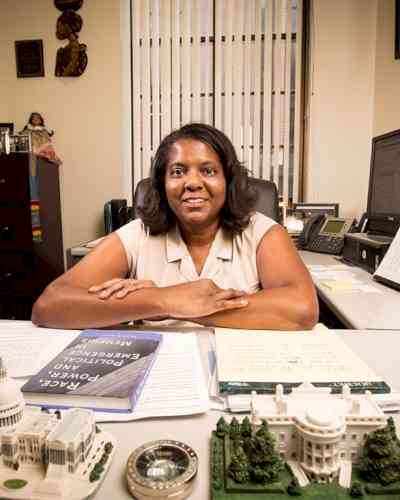Center for Arts, Migration, and Entrepreneurship
Affiliate Faculty
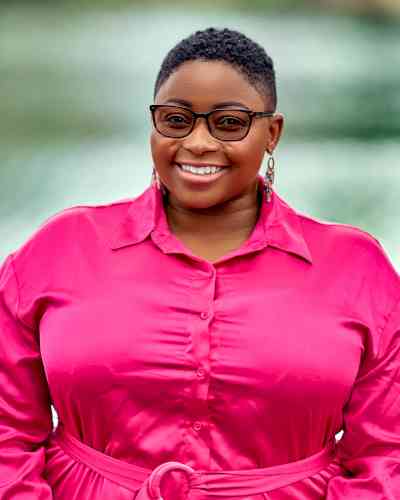
Abigail Carissa Lindo is a Jamaican-born ethnomusicologist, vocalist, educator, and creative. She is an Assistant Professor of Global Black Popular Musics at The Ohio State University. She has academic interests and publications on Afrodiasporic and Lusophone intersectional sonic expression; Caribbean popular music and gender dynamics; sustainable musicking and ecomusicology; and technology/media studies and vocal performance. Lindo has presented her research nationally and internationally, supported by funding from the University of Florida, American Musicological Society, Society for Ethnomusicology, and the Fulbright Commission of Portugal.
Lindo’s first book project, entitled Tectonic Becoming: Sonic Geographies of Technocultural Self-making, explores modern Lusophone identity politics and gender performances in sonic practices through personal, ethnographic vignettes while situating the land as a sounding aspect of cultural knowledge. She is a classically trained mezzo-soprano, singer/songwriter, and multi-instrumentalist who is actively incorporating performance and creative approaches into her presentations and instruction. She is a former K-12 educator whose interest in inclusive, experiential pedagogy and andragogy continues to inform her research pursuits and teaching.
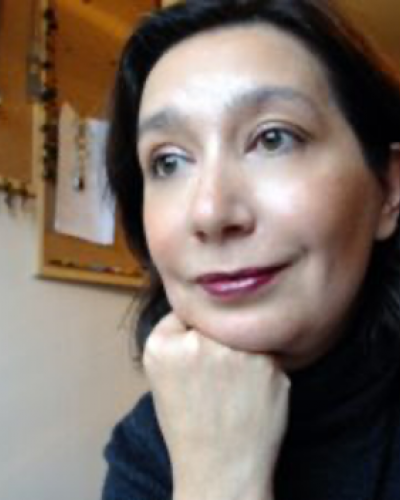
Aida A. Hozić is an Associate Professor of International Relations and Associate Chair of the Department of Political Science. Her research is situated at the intersection of political economy, cultural studies, and international security. Her current research projects focus on crime and state in Southeastern Europe, visual representations of race in international politics, and the diffusion of global arts markets in the 21st century.
She is the author of Hollyworld: Space, Power and Fantasy in the American Economy (Cornell University Press, 2002) and co-editor (with Jacqui True) of Scandalous Economics: Gender and Politics of Financial Crises (Oxford University Press, 2016). She has written dozens of peer-reviewed articles and chapters in edited volumes. Her work has been supported by the John D. and Katherine T. MacArthur Foundation, IREX, Institute for Turkish Studies, Open Society Institute, multiple Fulbright Awards, and other grants and fellowships.
Her courses include Divided Cities (Belfast, Nicosia, Sarajevo, Jerusalem), Art and War, Culture and World Politics and Feminist Political Economy.
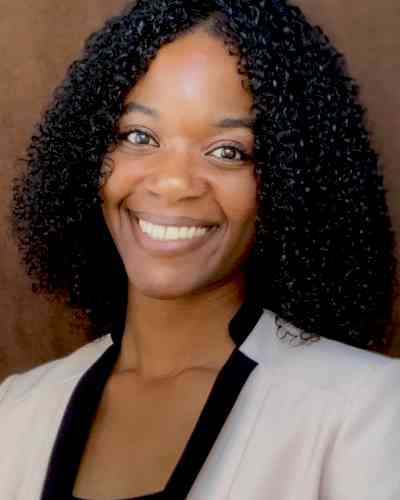
Alana Jackson is a multi-modal artist visionary and speaker working at the intersections of arts, entertainment, and public health. As a lecturer with the University of Florida’s Center for Arts in Medicine, Alana’s focus has been to prepare students to be catalysts for positive change. An Artist, Strategist, and Communicator, she additionally has extensive experience helping organizations to build and sustain programs.
Her work has spanned from juvenile justice/correctional settings to working bedside in hospital-based arts programming, in addition to spearheading community programs for adults facing neurodegenerative conditions.
Her current work focuses on the development of self-sustaining community centers for learning, wellness, and workforce development through creativity and collaboration. Other focus areas include arts, disaster, recovery, and resilience; and youth empowerment programs connected to arts and STEM integration, spoken word, literacy, learner identities, and health.
Alana has leveraged her background in the performing arts as a songwriter, dancer, and spoken word artist to inspire individuals to be agents for joy, wellness, and transformation in their own lives and communities.
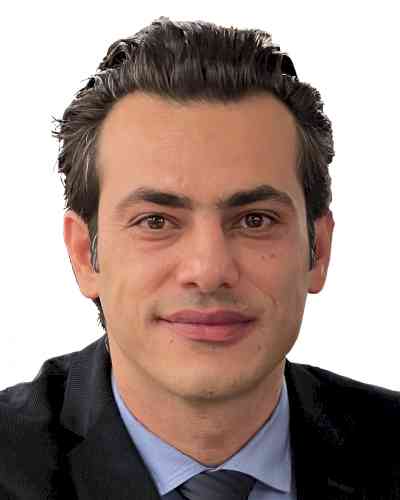
Dr. Alireza Pourreza is an associate professor of extension in the Biological and Agricultural Engineering department and the Digital Agriculture Lab director at the University of California, Davis. Dr. Pourreza leads research and extension education in digital agriculture, remote sensing, precision agriculture, and mechanization. Dr. Pourreza’s research program focuses on solving immediate challenges in crop production systems identified by stockholders. His lab develops practical and data-driven decision-support tools that help farmers increase profit while decreasing waste and environmental footprint.
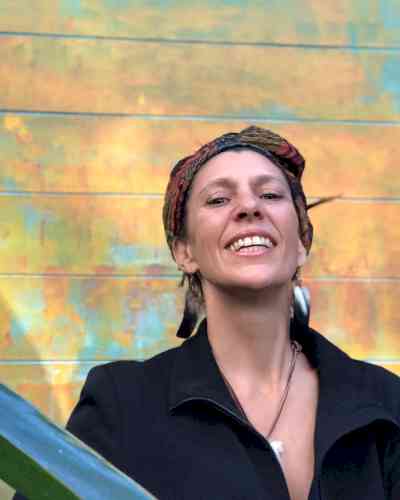
Dr. Amanda Concha-Holmes is an applied visual and ecological anthropologist, director of I.R.I.E. Center (Innovative Research and Intercultural Education), and Courtesy Assistant Professor in Anthropology at the University of Florida.
Her research for the past decade focuses on decolonizing representations of African descendants in the Americas predominantly through embodied forms of knowledge production, collective learning, and digital, art-based academic and healing endeavors. Employing poetic interventions through digital media to document underrepresented people and places is integral to her research, publications, teaching, and local programming. She calls this theoretical and methodological intervention Evocative Ethnography, which is an academic-artistic-healing endeavor that she has pioneered aimed at bringing feminist, decolonial ways of knowing the world to the fore. It extends from insights and theoretical interventions produced by feminists of color to the politics and poetics of representing place, multispecies entanglements, and marginalized bodies and knowledges.
Her work has been published in flagship journals like Cultural Anthropology and Visual Anthropology Review, she has received prestigious grants like the Wenner Gren Postdoctorate Research Fellowship and the National Endowment for the Humanities-Mellon Fellowship for Digital Publication, she has created exhibitions on Evoking the Complexity of Black Lives in Florida at the Harn Museum of Art, the Cotton Club Museum and Cultural Center, and the Matheson History Museum. Her most recent work is applying this intervention to decolonizing representations in the public-school curricula through SAAADI (Sankofa African American Arts and Digital Initiative).

Amelia Winger-Bearskin is an artist who innovates with artificial intelligence in ways that make a positive impact on our community and the environment.
She is a Banks Family Preeminence Endowed Chair and Associate Professor of Artificial Intelligence and the Arts, at the Digital Worlds Institute at the University of Florida. She is the founder of the UF AI Climate Justice Lab and the Talk To Me About Water Collective. She founded Wampum.Codes which is both an award-winning podcast and an ethical framework for software development based on indigenous values of co-creation. Wampum.codes was awarded a Mozilla Fellowship embedded at the MIT Co-Creation Studio from 2019-2020 and was featured at the 2021 imagineNative festival. She continued her research in 2021 at Stanford University as their artist and technologist in residence made possible by the Stanford Visiting Artist Fund in Honor of Roberta Bowman Denning (VAF) .
In 2022 she was awarded a MacArthur Foundation Award as part of the Sundance AOP Fellowship cohort for her project CLOUD WORLD / SKYWORLD which will be part of the Whitney’s Sunrise/Sunset series in late fall 2022.
In 2019 she was a delegate at the Summit on Fostering Universal Ethics and Compassion for His Holiness, The 14th Dalai Lama, at his World Headquarters in Dharmsala India.The non-profit she founded IDEA New Rochelle, in partnership with the New Rochelle Mayor’s Office, won the 2018 $1 Million Dollar Bloomberg Mayor’s Challenge for their VR/AR Citizen toolkit to help the community co-design their city. In 2018 she was awarded the 100k Alternative Realities Prize for her Virtual Reality Project: Your Hands Are Feet from Engadget and Verizon Media.
Amelia is Haudenosaunee (Iroquois) of the Seneca-Cayuga Nation of Oklahoma, Deer Clan on her mother’s side and her late father was Jewish/Baha’i
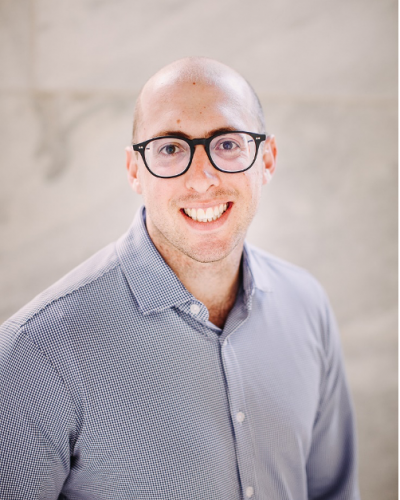
Andrew Rosenberg studies international relations and political methodology with substantive research interests in race in international politics, human security, and the economic effects of international migration. Much of Dr. Rosenberg’s work uses quantitative techniques to study the illicit and socially undesirable aspects of international politics and political economy.
His book manuscript under review unmasks and explains the persistence of racial inequality in international migration. His research has appeared in the American Journal of Political Science,Political Analysis and International Studies Quarterly.
His methodological interests include Bayesian statistics, causal inference, and computational modeling. In addition, Dr. Rosenberg has an article in Political Analysis (co-authored with Austin J. Knuppe and Bear F. Braumoeller) that develops a unified framework for studying asymmetric hypotheses.
Dr. Rosenberg received a Ph.D. from the Ohio State University, an M.Sc. (Research) from the London School of Economics in International Relations, and a B.A. from the Johns Hopkins University in International Studies and Political Science.
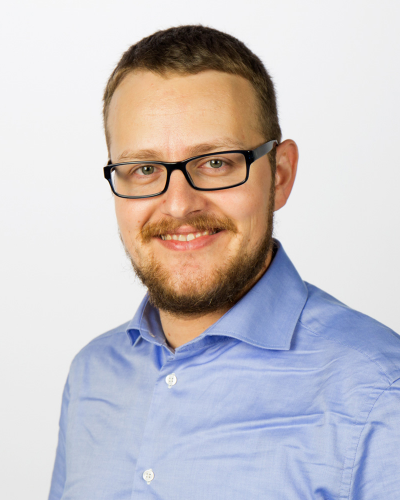
Angelos Barmpoutis is currently a Professor and coordinator of research and technology in the Digital Worlds Institute at the University of Florida. He is also an affiliate faculty of the Computer and Information Science and Engineering Department and the Biomedical Engineering Department, University of Florida. His current research projects focus on automated analysis of human motion, 3D reconstruction and dissemination of digital cultural heritage, applications of virtual and augmented reality, and medical image analysis. For his contribution to the aforementioned areas, he received in 2014 the Merit Award from the IEEE International Conference on Connected Vehicles, in 2016 he was finalist for the Rome Prize for Historic Preservation and Conservation, and was named UF Research Foundation Professor for 2020-2023.
Dr. Barmpoutis has coauthored numerous highly cited publications in the aforementioned topics, and his work has led to patented and copyrighted inventions registered in the US, and been funded by several awards and grants from various funding agencies including the National Science Foundation, the National Endowment for the Humanities, the National Institutes of Health, the US Department of Transportation, the Andrew W. Mellon Foundation, and the Robert Wood Johnson Foundation.
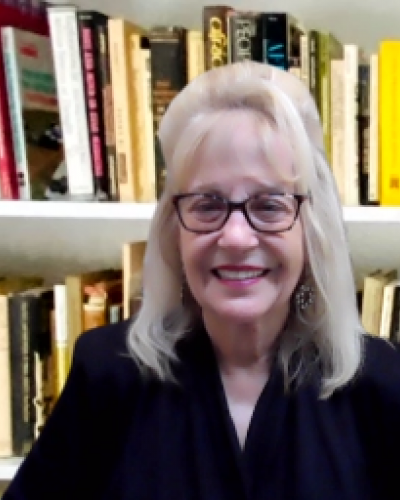
Anita Spring, Professor Emerita of Anthropology and former Associate Dean of the College of Liberal Arts and Sciences, has a bachelor’s (Chemistry) from the University of California, Berkeley, masters (Anthropology) from San Francisco State and Cornell Universities, and a PhD (Anthropology) from Cornell University.
She served as President of the Retired Faculty of the University of Florida. She is Affiliate Professor with the Center for African Studies and CAME. She served as Chief of Women in Agricultural and Rural Production at the Food and Agriculture Organization (FAO) of the United Nations.
She conducted research and projects on ritual and health care (Zambia, 3 years), gender and agricultural development (Malawi, 2 years), anti-famine crops (Ethiopia, 2 years), and in ten countries on Entrepreneurship from micro to medium size to global. She has also directed R&D in Jamaica (environment), St. Lucia (agriculture), Native Americans (kinship), and Archaeology (European settlements). She has written 11 books and 70 articles. She was inducted into the Explorers Club as National Fellow in 2020.
As CAME Affiliates, she and Dr. Barbara McDade helped produce CAME faculty’s first conference “Arts. Migration, and Entrepreneurship” and currently are working on CAME’s first book: Arts Entrepreneurship in Africa, the Diaspora, and Beyond! with individual CAME faculty.
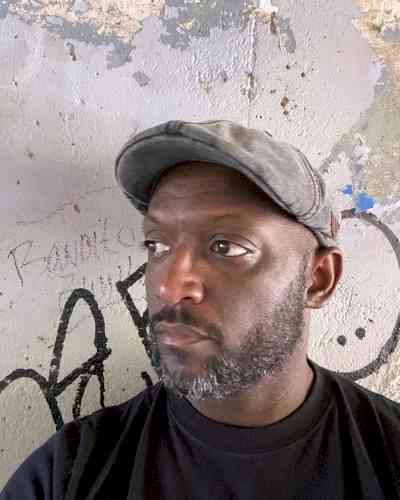
Antoine Williams is an interdisciplinary artist who is heavily influenced by speculative fiction, critical Black studies and his working-class upbringing in Red Springs, North Carolina. An artist-educator, Antoine received his BFA from the University of North Carolina, Charlotte, and his MFA from UNC Chapel Hill.
He has exhibited in a number of places, including at Smack Mellon Brooklyn, the Mint Museum of Art, Michigan State University, Columbia Museum of Art, 21c Museum, Elsewhere Museum, Prizm Art Fair, The McColl Center of Art and Innovation, the California Museum of Photography as well as many other venues. He has taken part in residencies at The Center for Afrofuturist Studies, The Hambidge Center, and the Joan Mitchel Residency in New Orleans. Williams’ was also a part of the 2021 Drawing Center viewing program, He is also a recipient of the 2017 Joan Mitchell Award for Painters and Sculptors and the 2018 Harpo Foundation Grant Award. His work is in the collection of the Nasher Museum of Art and the North Carolina Museum of Art. Williams is an assistant professor of art at the University of Florida.
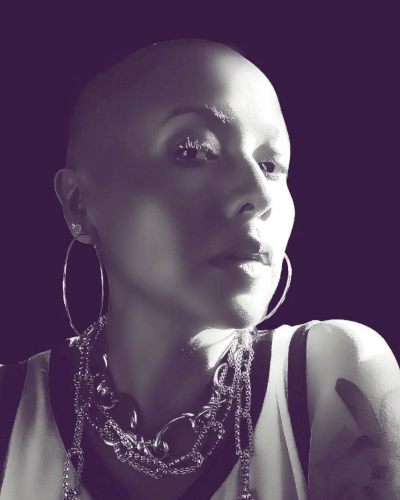
Ariadna is from Puebla Mexico where she studied law and worked in the field of education and human rights. She lived briefly in Comala while studying for her PhD in Social Sciences at the University of Colima. Her dissertation "Mujer, locura y derecho en tres novelas mexicanas contemporáneas" earned her a scholarship to continue her studies at the University of Kansas where she obtained a PhD in Spanish and Portuguese.
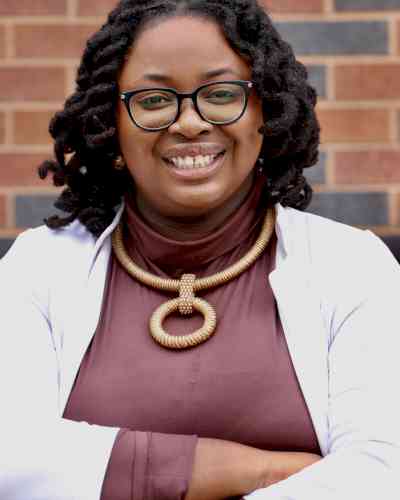
Dr. Ariel D. Smith is an entrepreneur and academic professor whose work has been centered in Black community and economic advancement for the past decade. She has been a consultant for municipalities, nonprofits, small businesses, startups, and higher ed institutions. Dr. Smith is an Assistant Teaching Professor of Entrepreneurship at Wake Forest University. Currently, Dr. Smith’s research examines the experiences and representation of African Americans within the food truck industry. Her podcast The Food Truck Scholar and book Before You Launch a Food Truck have been recognized by local, national, and international platforms including The Guardian, The Museum of Food and Drink, Whetstone Magazine, Cuisine Noir Magazine, and the Coalition for Food and Health Equity. In 2021, she was named a top 15 Black Culinary Trailblazer by TimeOut Magazine. She holds a PhD in American Studies from Purdue University and a Master of Education in Learning, Diversity, and Urban Studies from Vanderbilt University. She holds a Bachelor of Science in Business Management with a Human Resource concentration from the University of Alabama at Birmingham Collat School of Business with distinction in Global and Community Leadership.
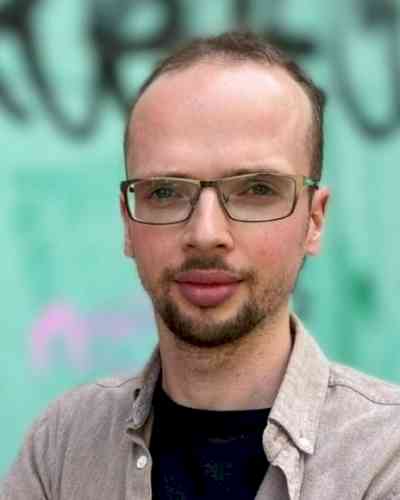
Armin Langer is a DAAD Visiting Assistant Professor at the Center for European Studies. Prior to joining CES, he was a Visiting Research Scholar at Brandeis University's Schusterman Center for Israel Studies in Waltham, MA, a Transatlantic Partnership on Memory & Democracy Fellow at the Center for German Studies at the University of Virginia in Charlottesville, and worked for the Center for Jewish Ethics at the Reconstructionist Rabbinical College in Wyncote, PA.
His research interests are migration, identity politics and populism in Europe and the US. He is author of a monograph on German-Jewish integration, co-edited an anthology on Jewish-Muslim entanglements and published several articles in edited volumes and peer-reviewed journals, including the German Studies Review (SSCI, AHCI), Studi Irlandesi. A Journal of Irish Studies (ESCI) and Journal of Jewish Ethics (ESCI). He has received various prizes and grants, such as the Western Jewish Studies Association's Baron Award or the University of Notre Dame's Cushwa Center for the Study of American Catholicism Grant.
Armin holds a Ph.D. in sociology from the Humboldt University of Berlin. He also studied philosophy and Jewish studies in Budapest, Jerusalem, Potsdam, and Washington, D.C., and graduated with two M.A.'s and two B.A.'s. He was ordained as a rabbi by the Reconstructionist Rabbinical College and has had teaching and pulpit positions in Jewish communities in the US, Mexico, Sweden, Germany, Austria and Hungary.
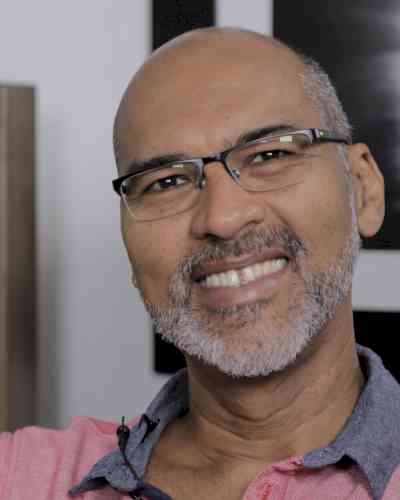
Augusto Soledade, a 2008 Guggenheim Fellow, is the Founder Artistic Director and resident choreographer for Augusto Soledade Brazzdance in Miami.
In the fall of 2018, Professor Soledade was nominated for the USA Artist Fellowship. In 2016, he was awarded for the seventh time the Miami Dade Choreographer’s Fellowship from the Miami Dade Cultural Affairs. In 2012 Professor Soledade was awarded the prestigious Knight Arts Challenge Grant in support of the Miami Dance Mecca Project, an initiative implemented by Augusto Soledade Brazzdance to boost Miami’s reputation as an emerging center for contemporary dance. Also in 2012, he was awarded, for the second consecutive time, the 2012 Individual Artist Fellowship from the State of Florida Division of Cultural Affairs.
He received his M.F.A in Dance from SUNY Brockport in 1998. Also in 1998, he received the Pylyshenko-Strasser Graduate Dance Award and was the finalist in the dance category for the 1998 Thayer Fellowship. A native of Bahia, Brazil, Professor Soledade started his dance training at the Federal University of Bahia, Brazil in a program with strong modern dance emphasis, and has trained with Garth Fagan and Clyde Morgan. He also holds a degree in journalism from the Federal University of Bahia.
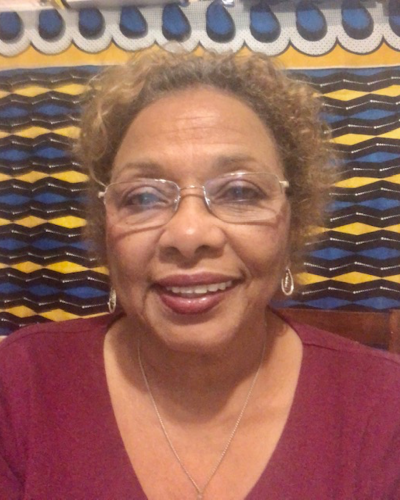
Barbara McDade Gordon, Ph.D. is Associate Professor Emerita, Geography & African Studies, University of Florida; and an Affiliate Faculty Member in the Center for Arts, Migration, & Entrepreneurship (CAME) in the UF College of the Arts; and serves on the Advisory Committee of the African American Studies Program at UF.
Her book, African Entrepreneurship: Theory & Reality (UPF 1998) co-edited with Anita Spring, was the inspiration for the CAME Conference: “African Entrepreneurship, the Arts + Beyond” (2022). They are co-editors of a volume of articles and performances from that conference.
She is a founding director of Alachua County African and African American Historical Society, President of Welcoming Gainesville & Alachua County, and Secretary of the United Nations Association-Gainesville. She serves on the Boards of Directors of the Cotton Club Museum and Cultural Center, and Cultural Arts Coalition. She is President-Elect of the Retired Faculty of the University of Florida.
Barbara served as Director of Upward Bound, a college preparatory program for promising students from low-income households in a joint UF appointment, 2004-2012. She continues to communicate with Upward Bound graduates and their parents and is proud of their accomplishments.
She received the Bachelor of Arts from Texas Southern University; Master’s in Community & Regional Planning and Ph.D. (Geography & Planning) from University of Texas-Austin. She was Visiting Professor at the University of Ghana, 2013-14. She is a Fulbright Scholar and founding member of the African Studies Association of Africa (ASAA). Her current research focus is the Global African Diaspora.
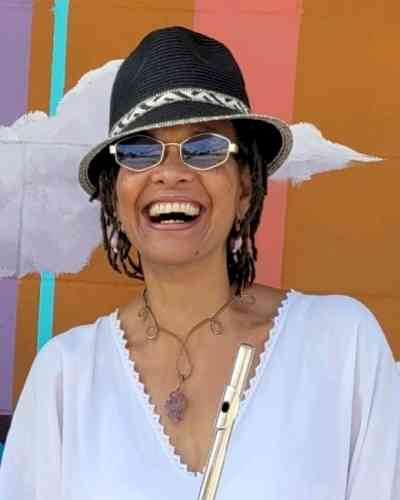
Blanche has been the successful owner of Greatness By Design, LLC for over 22 years with several unique endeavors along the way. While conducting trainings for National Institutes of Health, she was also a National XM Satellite Radio Talk Show Host holding conversations with legends such as Cicely Tyson, Quincy Jones, Deepak Chopra, Susan Sarandon and Dr. Maya Angelou. She possesses a creative mind combined with a spirit of manifestation that has helped her live a life of unforgettable experiences including being invited by First Lady Michelle Obama, as one of 30 female leaders, to the White House to acknowledge her work with women and girls. She received a Sisterhood award inside the Smithsonian National Museum of African-American History & Culture, and holds a Master’s Degree in Leadership from Nova Southeastern University and has served as an Adjunct Professor at Palm Beach State College's Center for Leadership & Professional Studies and as its Facilitator for the Center for Applied Ethics. She's a published author, inventor, flutist, host of Jazz on Main Street-GNV Pro-JAM along with a member of the City of Gainesville Citizens Advisory Council for Community Development.
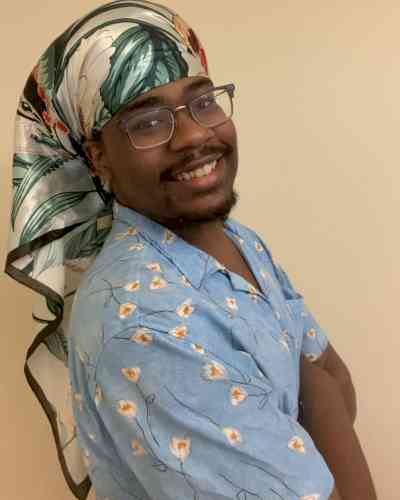
Braxton Rae is an artist whose creative work and scholarship focuses on blackness, queerness, womanism, and marginalized identities more broadly. Additionally, Braxton is passionately pursuing the craft of intimacy work. As a former CAME Maker in Residence (2023-24), Braxton Rae facilitated creative workshops for College of Engineering students via the IGNITE program (Innovation Gator Network for Inspiring Technological Entrepreneurship) to increase design innovation. They supervised a student-led production combining dance and astronomy; and facilitated interactive community workshops with youth utilizing theatre techniques. Braxton collaborated with Professor Heidi Boisvert, an AI and the Arts faculty, to direct an original performance integrating devised theatre techniques and AI technology.
Braxton received their MFA in Theatre Direction from UT Austin and their artistic goals are to foster an arts community that focuses on diversity, equity, inclusion and love. Recently Braxton directed Always Patsy Cline at Great River Shakespeare Theatre Festival and the world premiere of Small Steps by Briandaniel Oglesby. In 2021 Braxton created their first Performance art album titled Truth, which can be experienced at www.truthbybraxtonrae.com Learn more about Braxton at www.braxtonrae.com.
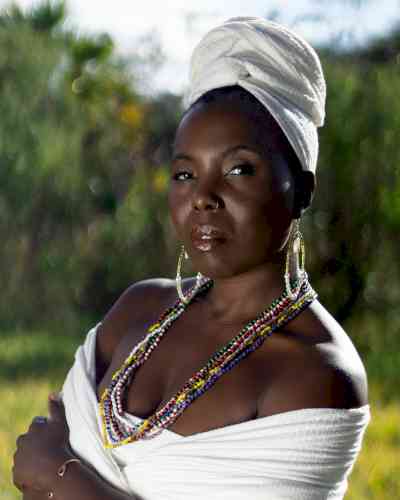
Christa Sylla is an accomplished dancer, choreographer, and educator specializing in African and Diaspora dance traditions. As the founder and director of the Nan Nkama Pan-African Drum and Dance Ensemble, she has dedicated her career to preserving and celebrating African cultural heritage through dance, music, and community outreach. She has developed an innovative World Dance Studies curriculum at Douglas Anderson School of the Arts and contributed to the University of Florida's BA program in Contemporary African and African Diaspora Dance Practices. Her work emphasizes the transmission of cultural values through folkloric traditions, as well as justice, commitment, and cultural integrity. A highly respected Creative Leader in Dance at Jacksonville Arts and Music School, Sylla has performed and choreographed extensively, presenting at the American College Dance Association and serving as a guest artist at Randolph College. Her company was also featured at TEDx Jacksonville. Her artistic contributions have been acknowledged by the Florida Folklife Society, marking decades of innovative work.
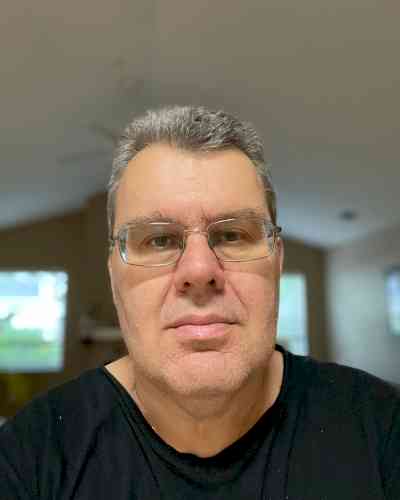
Chrysostomos Kostopoulos studied Classics at the University of Ioannina and earned an MA and a Ph.D. degree from the University of Wisconsin-Madison. His interests vary from Roman and Ancient Greek Science to Modern Greek linguistics, history, and politics.
He has published reviews and articles in journals such as Delos, Mouseion, and Ombrela and has presented papers at various national and international conferences. At UF, he teaches courses on Modern Greek language and literature as well as Modern Greek history, Greek identity, and the continuity of the Greek civilization from ancient to modern times. He is currently working on a monograph examining the role and the impact of the Rebetika songs on the immigrant Greek communities in the USA.
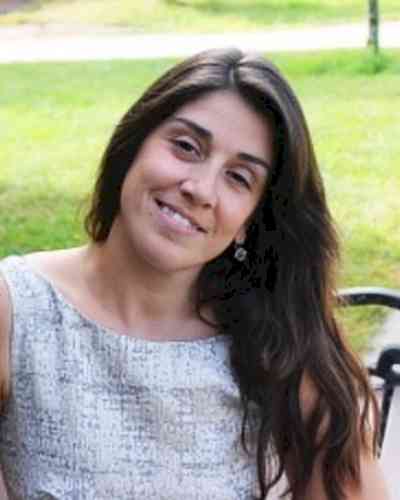
Dr. Colleen Rua is Assistant Professor of Theatre Studies at The University of Florida. Her research interests include Latinx Theatre, Immersive Theatre, the American Musical, and Theatre for Youth.
Her current book project explores the relationship between performance, trauma and healing in commercial and community-engaged representations of Puerto Rico. She works closely with the San Juan-based Y no habia luz theatre collective as she considers the role of artists as responders to (un)natural disaster.
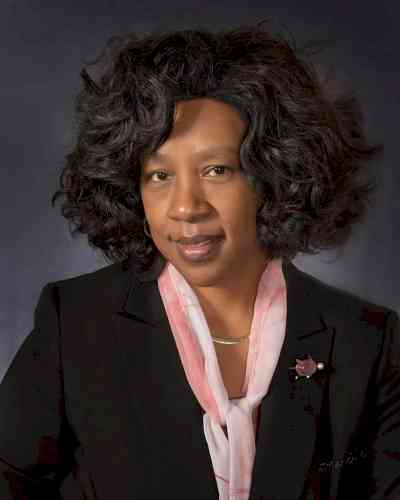
Cynthia Wilson Graham is the founder and owner of Helping Hands Photography & Design Publishing, LLC (HHP), and an educator, author, and photographer passionate about research. As an educator, she has developed and delivered training programs for staff at local, state, and regional boards. As an author, her journey began in 2000 when she volunteered for the census and felt a strong urge to document the history of Marion County. In her research and co-authorship of “Remembering Paradise Park at Silver Springs", along with two short memoirs, the “Mural Guide for the Edward Croskey Center-Quilted Memories” and in publishing an annual small business directory, she has underscored the need for further documentation of African American community. As the photographer of HHP, she has captured history through her camera lenses, including the 44th president at his inauguration and rally in Kissimmee, Florida.
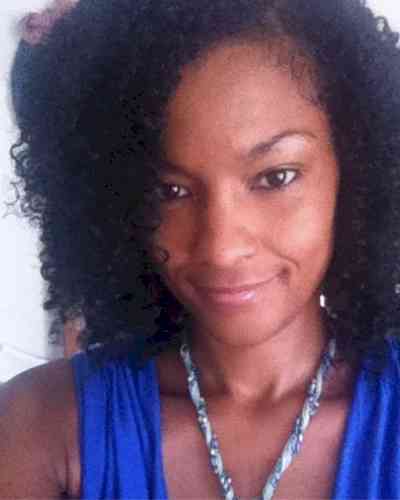
Dionne Champion is a Research Assistant Professor in the Center for the Arts in Medicine at the University of Florida. Her research is focused on the design and ethnographic study of learning environments that blend STEM and creative embodied learning activities, particularly for minoritized youth who have experienced feelings of marginalization in STEM education settings.
She is currently working on several projects that center STEM and Arts integration through “making,” engaging youth and communities in arts-integrated making practices with an intentional focus on developing equitable and productive collaborations that are interdisciplinary and intergenerational. She works primarily with African American populations, researching learning and identity in informal learning spaces, seeking to understand how the body and dance can be resources for sense-making and contribute to the development of agency and support healthy conversations around power, equity, and social issues.
Dionne is also co-Director of the SPARC352 initiative. Through this project, she is working to better understand how the arts can support creative social entrepreneurship in marginalized communities and to develop models for equitable research and relationships between researchers and communities (positioning youth and communities as co-researchers).
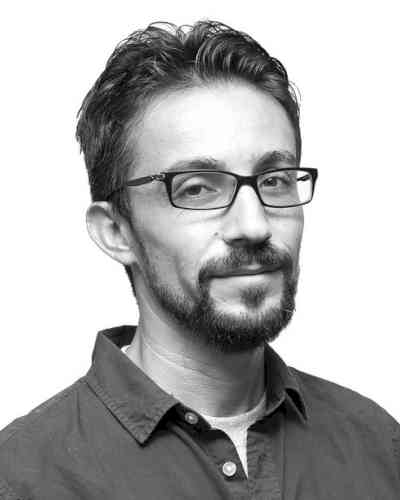
Emrah Sahin is a specialist in state formations, international operations, and ethno-religious interactions with a particular interest in modern encounters in the Global South. He received his Ph.D. from McGill University and is the recipient of an SSHRC Award in Canada (Social Sciences and Humanities Research Council), an SHF International Research Award in Turkey (Sabanci Humanities Foundation), and the Teacher of the Year Award at the University of Florida.
Emrah's first book Faithful Encounters is an archive-driven narrative of the Muslim-male-centralist responses to Christian-family-evangelical enterprises in Ottoman lands from Greece to Syria -- and is critically acclaimed in scholarly venues such as Humanities Network and Journal of World Christianity. He also edited volumes on cultural exchanges, language pedagogies, and a non-fiction graphic novel, and published peer-reviewed articles in journals such as the Journal of Historical Sociology (“Myth of the Eternal State”). While on a Global Fellowship at the University of Florida, he embarked on a second major research project simultaneously tracing Muslim travelers, Kurdish massacres, and the morality dialectics that gained currency in post-1870 periodicals housed in Istanbul, Cairo, and Asfahan. His projects funded by the Center for Arts, Migration, and Entrepreneurship (CAME) include an interview-powered study of mixed-race patterns and practices at the University of Florida and a localized look at local water wells established by foreign entrepreneurs in specific parts of Africa.
Emrah Sahin is currently an Associate Instructional Professor in the Center for European Studies, an advisory board member in the Center for Global Islamic Studies, an affiliate faculty member in the Department of History as well as the CAME, a college-wide student advisor, and the coordinator of Department of Defense-funded Global Officer Program in Swahili and Turkish. Dr Sahin offers classic, novel, and transdisciplinary area-studies courses and honors reading seminars such as Modern Middle East, A History of God, Global Cities, and Soccer Culture.
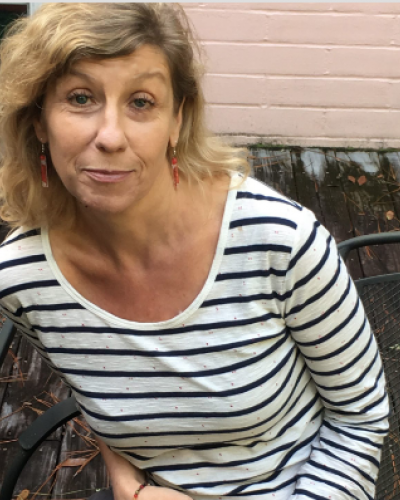
My work is broadly interdisciplinary, and borrows from Memory Studies, Critical Race Studies, Holocaust Studies, Jewish Studies, Postcolonial Studies, Migration and Nationality Studies, Political Philosophy and Performance Studies.
I currently teach courses with a regional focus on Europe and a thematic focus on: The politics of Holocaust Memory, Urban Studies, Migration Studies, Refugee Studies, Critical Theory and the Politics of Culture.
My publications converge around an interest in the importance of narratives in ordering political realities and forging collective identities. I decipher the narratives embedded in collective memory practices, Holocaust memory, migration debates, the representation of migrants and refugees in media and film, and trace the intellectual genealogies, ideational fault lines and power struggles of which they are the expression.
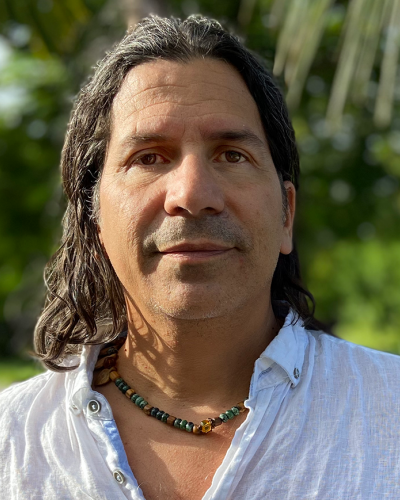
Fabio Garcia is a storyteller at heart with a broad background in media production. As Promotions Manager at GenTV, he led the development and execution of successful promotion strategies for a diverse range of television shows. His work spans across continents, having produced documentaries in Africa that explore the roots of hip-hop as a form of raw expression to help communities cope with challenging realities. Additionally, Fabio has worked closely with indigenous communities in South America, helping elders share their ancient wisdom with younger, urban generations.
His passion for teaching is rooted in empowering individuals to tell their own stories. As a Post Production professor and course creator, Fabio specializes in video editing, storytelling, and new media. He uses tools like Avid Media Composer, Adobe Premiere Pro, and After Effects to guide students in transforming creative ideas into compelling visual narratives.
At TheStoryLab, he developed interactive storytelling programs for children and youth, fostering creativity and narrative expression. Fabio’s research focuses on how personal and societal narratives shape both individual and collective experiences. He is fascinated by how storytelling can drive human action, inspire hopes for a better future, and fuel ideologies that foster positive change.
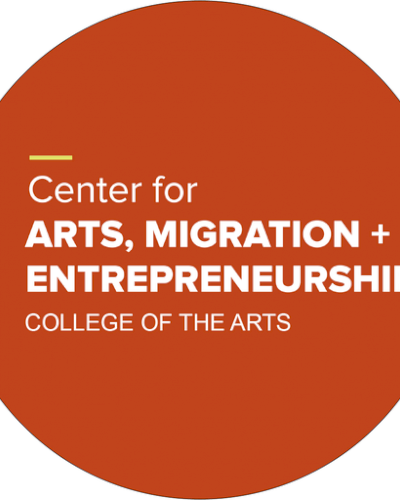
Interdisciplinary artist Fatimah Tuggar was born in Nigeria and raised there and in the United Kingdom. Tuggar uses dialogue and discovery among disciplines and cultures as central approaches of artmaking. She interrogates the impact of technologies. Her strategy is to be imaginative, adaptive, provocative, a culture jammer and resistor if necessary. Challenging the segregated borders of aesthetics and cultural perceptions and facilitating diverse ways of knowing, making, and contributing is critical to her approach.
Her work uses technology as both medium and subject to serve as metaphors for power dynamics. She combines objects, images, and sounds from diverse cultures, geographies, and histories to comment on how media and technology diversely impact local and global realities. Her work has been widely exhibited at international venues in over twenty-five countries. Tuggar’s art education covers three continents and a broader range of disciplines, traditions, processes, and materials. She has been a recipient of several fellowships including a W. A. Mellon Research Fellowship from Franklin Humanities Institute at Duke University, the Civitella Ranieri, Umbertide, Umbria, Italy, and a Guggenheim Creative Arts Fellowship.
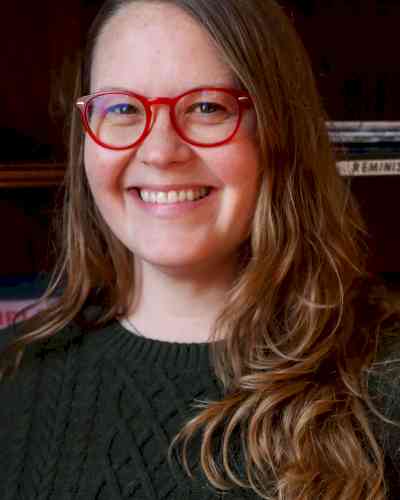
Ginessa Mahar holds a Ph.D. in anthropology and specializes in Southeastern Native American archaeology. She presently serves as the Anthropology Librarian and Liaison to the American Indian and Indigenous Studies program for the George A. Smathers Libraries at the University of Florida where she is also an affiliate faculty member of the Department of Anthropology and the Florida Musuem of Natural History. Beyond librarianship, Dr. Mahar has a broad background in archival research and analysis, collections management, and museum practices.
Prior to UF, Dr. Mahar worked in the North American Archaeology Division of the American Museum of Natural History where she stewarded the division’s internship program in addition to lab and collections management and fieldwork. Her current service and scholarship focus on revitalizing and elevating Indigenous materials held at the University of Florida.
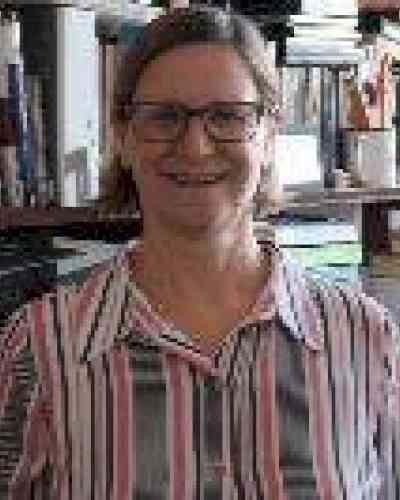
I have been teaching at UNESP for 30 years. My area of research is American Literature, mainly related to Postmodernism, Literature and History, American Culture, Don DeLillo and the literary production of Latino/a writers in the United States. I was the Coordinator of the Graduate Program in Literature for seven years. Under my term, the program received a better evaluation from CAPES, the funding agency that supports and evaluates graduate programs in Brazil. Our Program received Grade 6, which means international excellency. I coordinated a Graduate Program between UNESP and the Federal University of Rondônia (north of Brazil), funded by CAPES, to reduce asymmetries among Brazilian regions. I coordinated agreements between UNESP and the University of Louisville and also with The Ohio State University. The University of Louisville waved tuition and fees from UNESP students. Fifty-three undergraduate students from UNESP took courses at UofL in the Fall Semesters from 2007 to 2018. I coordinated the Brazilian Studies Program and organized lectures and visits to more than 100 students from American Universites. I promoted virtual exchanges in my American Literature courses with DePaul University, ELAC and UCA. I co-taught graduate courses with Dr. Manuel Medina (UofL) and Dr. Lúcia Costigan (OSU).
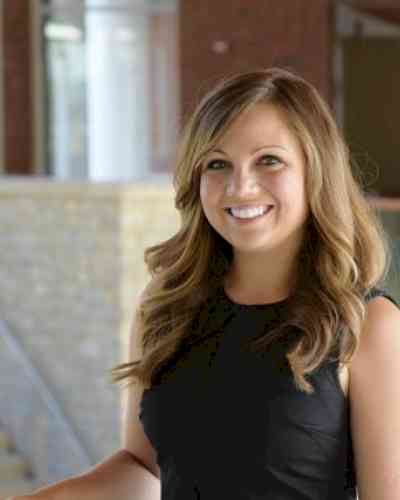
Hannah M. Alarian is currently an Assistant Professor of Political Science at the University of Florida, where she also is a faculty affiliate with the Center for European Studies. Her research examines topics of migrant integration, immigration, political identity and participation, and public policy. Broadly, she considers the processes through which immigrants are included in and excluded from their new societies in Western Europe.
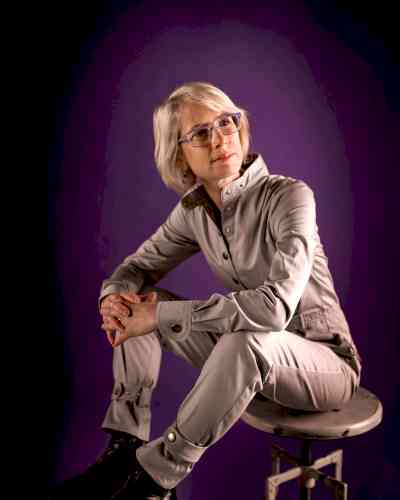
Heidi Boisvert (PhD) is an interdisciplinary artist, experience designer, creative technologist, and academic researcher who interrogates the neurobiological and socio-cultural effects of media and technology. Simply put, she studies the role of the body, the senses, and emotion in human perception and social change.
Boisvert is currently mapping the world's first media genome, while taking great care with its far-reaching ethical implications. She founded futurePerfect lab, a creative agency and think-tank that works with social justice organizations to design playful emerging media campaigns to ignite the public imagination. She also co-founded XTH, a company creating novel modes of expression through biotechnology and the human body and devises large-scale networked theatre and dance.
Presently, she is working with David Byrne on Theater of the Mind, a new immersive theater piece and co-curating EdgeCut, a live performance series, which explores our complex relationship to the digital. Boisvert is Assistant Professor of AI and the Arts at the University of Florida in the College of the Arts, School of Theatre + Dance. She is also a Senior Research Fellow at the Norman Lear Center, a research affiliate in the Open Documentary Lab at MIT and a member of NEW INC’s Creative Science track. As part of CAME, she is developing a series of micro-performances and a living lab (along with a set of open-source machine learning tools) to transform epigenetic trauma.
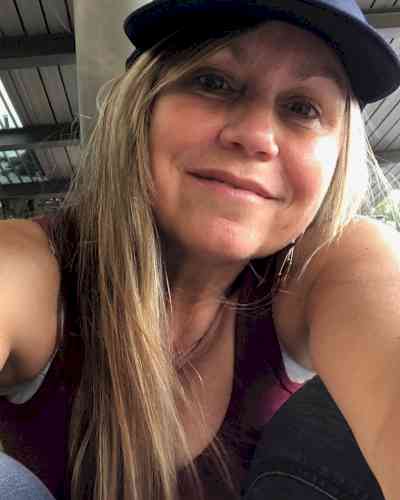
Dr. Heidi C. Powell is Associate Professor of Art Education and Director of the MA Art Education Online in the School of Art and History at University of Florida. She has authored several book chapters and journal articles, and is currently serving as a Fulbright Scholar to the Domincian Republic.
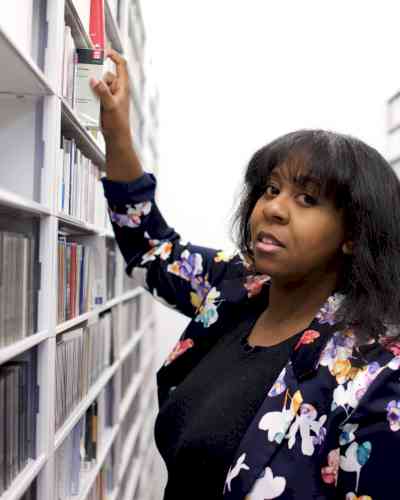
Imani Danielle Mosley is Assistant Professor of Musicology and Affiliate Assistant Professor at the Center for European Studies at the University of Florida. Her research focuses on Benjamin Britten through British postwar studies, with her current book project, Britten’s Churches, examining East Anglian sacred sonic culture. Other research areas include artificial intelligence, digital humanities, and trauma studies. She has recently authored articles for The New York Times on British royal sacred and ceremonial music.
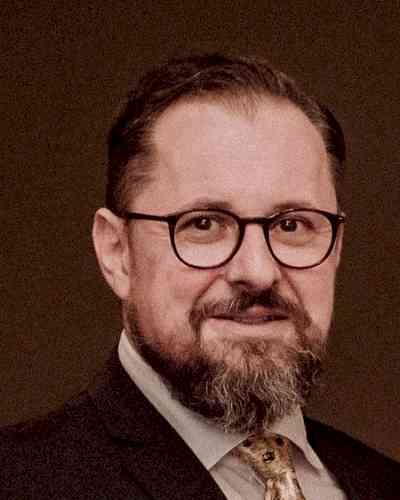
Dr. István Tarrósy is Full Professor of Political Science and Director of the Africa Research Center, Department of Political Science and International Studies, University of Pécs.
He is Visiting Professor at the Faculty of Political Science and International Relations, Jagiellonian University of Kraków, Poland, where he teaches in the ISAD MA Program. He is head of the Doctoral Program in International Politics in Pécs. He is member of the China–Africa Working Group (CAWG) at the University of Florida, where he was Fulbright Fellow in 2013-14. His work is published in African Security, African Studies Quarterly, PLoS One, Journal of Geography in Higher Education, Society and Economy, Politics in Central Europe, Eastern Journal of European Studies, European Spatial Research and Policy, Africa in Fact. István is Editor-in-Chief of the Hungarian Journal of African Studies (HJAS).

Dr. Jackie Berry is a Cognitive Scientist who studies learning and human-computer interaction as an Assistant Professor of Psychology at The American University in Cairo. Jackie is the first person of color to earn a PhD in Cognitive Psychology from SUNY Albany.
Jackie originally travelled to Egypt as a Fulbright United States Scholar to study interface switching in Arabic-English biliterates. As a result of her work there Jackie has spoken before the United Nations about language policies worldwide. Jackie is a best-selling author and co-founder of Artificial Intelligence for Africa. Her mission is to improve how people engage with technology regardless of language or educational background. Dr. Berry recently competed in the World pageant competition for women with Ph.D.'s or M.D.'s as Dr. World Africa 2022.
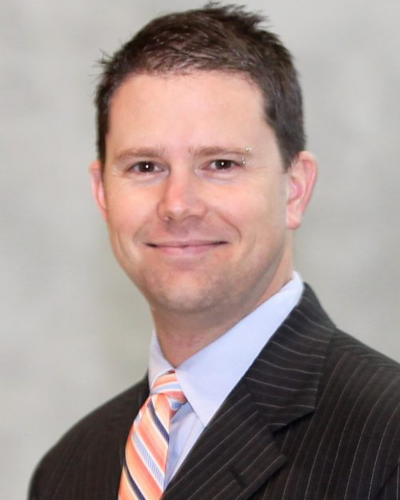
Jamie Kraft is currently the Director of the Entrepreneurship and Innovation Center. Jamie came to the Center from Deloitte Consulting where he spent several years as a management consultant focusing on economic performance evaluation, competitive assessment, and strategic development for clients in the manufacturing and consumer products industries.
He graduated from the University of Arizona with a degree in Microbiology and from the University of Florida as a Matherly Scholar with a MBA specializing in Finance, Operations Management, and Business Strategy. Before starting with the Center, Jamie spent one year in Paris studying the French language.
He has been with the Center for the past 20 years and is currently the Center’s Director. He has served as the instructor for courses covering the topics of the entrepreneurial mindset, business planning, technology commercialization, small business consulting, customer discovery, entrepreneurial leadership, and creativity, and has managed, led, and participated in student programs in Silicon Valley, Hungary, Ireland, Chile, Cuba, South Africa and Haiti.
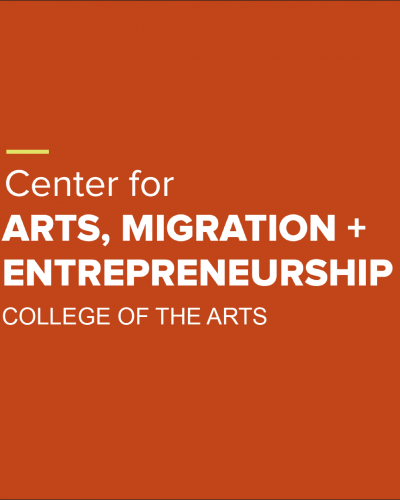
Dr. Jashodhara Sen is a performance historian at the University of Florida, specializing in the intersection of politics, identity, and liberatory performances across South Asia and the South Asian diaspora. Her current book project, Intersectionality in ‘Folk’ Performance Through Identity and Expression, examines the Bengali performance form jatra, focusing on class and gender dynamics. She has published widely in journals such as the Journal of Dramatic Theory and Criticism, Asian Theatre Journal, and Political Theology. Her recent book chapter with Routledge explores the performance of gender on the contemporary Indian stage.
Dr. Sen also leads a digital storytelling project, “Leaving Home, Finding Home”, which reimagines theatrical spaces for South Asian immigrant women. This project has garnered several awards, including the PAGE Award from Imagining America and scholarships for engaged arts research. In 2020, her directorial work on Shakuntala was recognized by the Kennedy Center American College Theatre Festival. She earned her PhD in Theatre & Performance Studies from the University of Colorado Boulder.
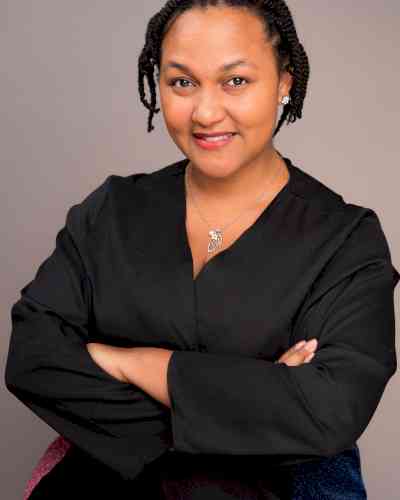
Jasmine L. Blanks Jones is a dynamic theatre nonprofit leader, award-winning educator, and holds a dual PhD in Education and Africana Studies from the University of Pennsylvania. Her research on theatrical performance as a civic engagement praxis illuminates global race-based inequities in education and health, lifting the potential of knowledge co-creation through the arts and digital cultural production. As founder of Burning Barriers Building Bridges Youth Theatre (B4YT), a cultural performance company dedicated to community empowerment through the arts, she has more than twenty years of experience in youth development in Africa, Asia, Europe, and North America.
Having developed a track record of leadership in arts and advocacy in communities of color globally, in 2018 Jasmine extended the scope of B4YT to include a consulting practice, Creating Brave Stages, which provides support and guidance for advocacy organizations looking to integrate the arts into their movements and artists aspiring to create positive change through their performances. She holds a Masters of Public Policy degree from the University of Minnesota and Bachelor of Science in Music Education from Florida A&M University. She is a lecturer in the Program in Racism, Immigration and Citizenship at Johns Hopkins University where she conducted research and public scholarship as an inaugural Postdoctoral Fellow with Inheritance Baltimore. She serves as the Executive Director of the Center for Social Concern at Johns Hopkins.
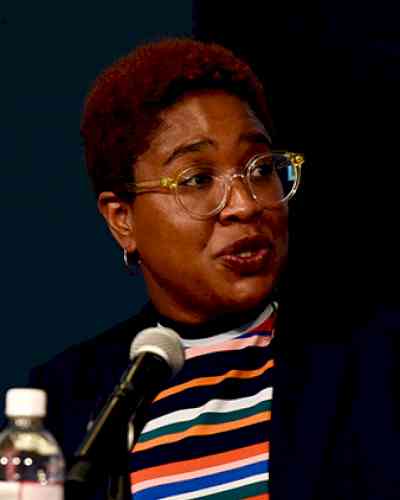
Jasmine McNealy is an attorney, critical public interest technologist, and social scientist who studies emerging media & technology with a view toward influencing law and policy. Her research emphasizes technological ecosystems, privacy, surveillance, and data governance. She is a Policy Fellow with the Public Interest Technology University Network (PIT-UN), and a professor at the University of Florida where she directs ICED Labs. She is also Faculty Associate at the Berkman Klein Center for Internet & Society at Harvard University.
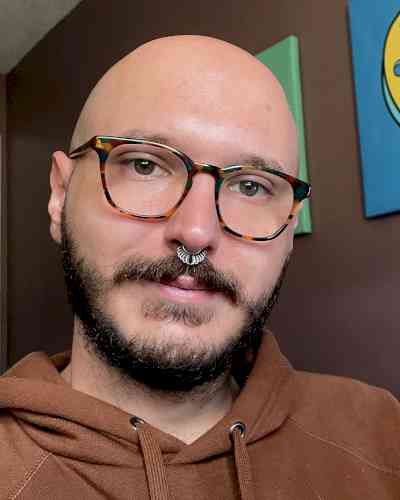
Jeremy Frusco received his Ph.D. in Music at the University of Florida in 2022. His current work explores the interdisciplinary dimensions of popular music, particularly hip hop, and how contemporary artists use their platform to perform care, practice social responsibility, and critically reflect on identity and belonging.
His dissertation research examines how the Italian rapper Ghali forms creative strategies of care and responsibility in response to the pressures of celebrity, internet culture, and sociopolitical conflict. Beyond this research, he has worked collaboratively with colleagues in the humanities to better understand the invisible emotional labor behind livestreaming and online community interactions. Through platforms like Discord and Twitch, their work examined how language about live-streaming struggles to grasp the emotional resonances of digital life. Jeremy continues to work broadly in the humanities, with particular attention to publicly-engaged and digital forms of scholarship. He is a collaborative grant writer and currently serves as the Program Coordinator for the Mellon PhD Program Interventions grant at the James T. Laney School of Graduate Studies at Emory University in Atlanta, GA.
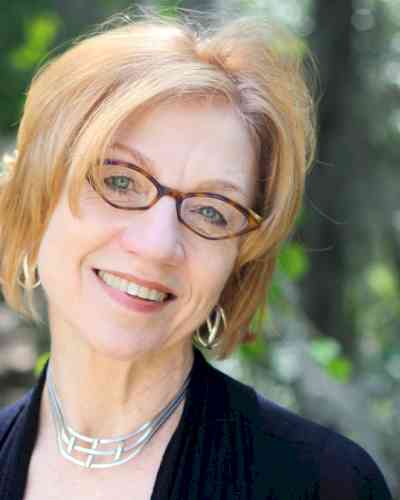
Joan D. Frosch is Professor of Dance in the School of Theatre and Dance, where she has taught since 1995. She was also director of UF’s Center for World Arts, a living laboratory exploring the interface of arts and society, which she co-founded with colleague Larry Crook in 1996. Dr. Frosch is affiliate faculty of the Centers for African Studies, Latin American Studies, and Digital Worlds.
She is a consultant for the Florida Department of State, Division of Cultural Affairs, National Endowment for the Arts, and Creative Capital, among others. Awarded the University of Florida Research Foundation Professorship (2012-2015), Dr. Frosch is a dance ethnographer, Laban Movement Analyst (CMA), filmmaker, choreographer, and author. Her research has attracted numerous honors and awards, such as the national Lilly Fellowship for innovative curriculum in Dance in World Cultures, the National Endowment for the Arts (Dance-Creativity), the Cologne Choreographers' Forum for her choreography, "China."
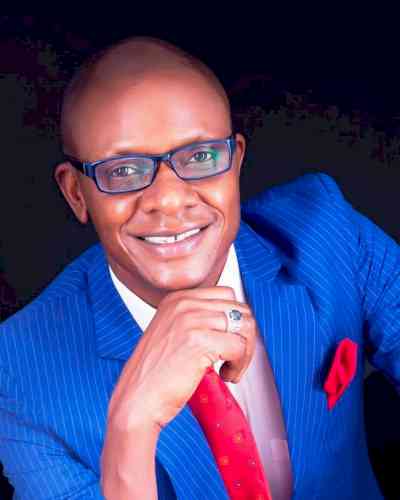
John Mugubi is an Associate Professor of Dramatic Arts at Kenyatta University. He has more than twenty years teaching experience.
Mugubi holds B.A. and M.A. degrees from the University of Nairobi and a PhD from Kenyatta University. Until recently, he served as the Dean, School of Creative Arts, Film and Media Studies at Kenyatta University. He has published extensively in Film and Drama. He focuses on Playwriting, Screenwriting, Dramatic Theory and Film Genres. Mugubi chairs the Kenya International Theatre Festival Board of Trustees.
He is currently the Vice Chair, CILECT Africa Regional Association Council. Prof. Mugubi is also the current Chairman, Kenya Film Lecturers and Instructors Association. He is a member of the Advisory Board for Multichoice Talent Factory; a film academy for the East African Region. As a Producer and Screenwriter, Mugubi has produced more than 100 TV Dramas, documentaries and short Films. Prof. Mugubi has acted in and directed countless plays at the University and at his church where he is also a choir member. As an academic mentor, Prof. Mugubi has successfully supervised more than Seventy (80) M.A. and Ph.D Candidates.
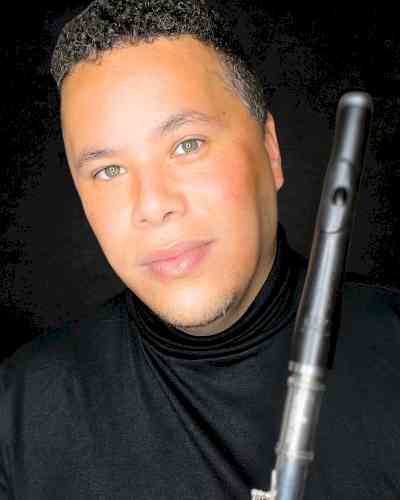
“Be ruined for the ordinary and obsessed with the pursuit of wonder. That wonder is Jesus Christ.”
Dr. José Valentino Ruiz is an internationally acclaimed performing artist, composer, scholar, and entrepreneur, recognized as the 2024 Global Genius® Grand Prize Winner, a ten-time Global Genius® Award Winner, four-time Latin GRAMMY® Award Winner, four-time Latin GRAMMY® Nominee, EMMY® Award Winner, 55-time DownBeat® Music Award Winner (record holder), and 33-time Global Music® Award Winner (record holder). His career spans over 1,400 performances on six continents, including two headlining concerts at Carnegie Hall. Valentino has produced more than 150 albums, composed music for ten documentaries, authored over 120 peer-reviewed scholarly publications, and provided over 110 keynote addresses and workshops globally. José Valentino is also recognized for raising millions of dollars to support nonprofit arts entrepreneurship education initiatives and has founded multiple influential professional development conferences, including the Music Business & Entrepreneurship Summit, International Jazz & Entrepreneurship Camp, and Global Music Entrepreneurship & Production Summit.
Appointed by the University of Florida as part of the Faculty 500 Initiative, José Valentino concurrently maintains his long-standing role as Co-Founder, Owner, and CEO of JV Music Enterprises. Under his leadership, JV Music Enterprises delivers internationally acclaimed performances, innovative multimedia productions, strategic B2B partnerships with leading global entertainment corporations, prominent social impact organizations, and distinguished influencers in the arts and STEM fields. The company also develops influential educational programming, significantly contributing to global revenue generation and impact. He previously held executive roles, including Director of Digital Content Strategy for Worldwind Music Ltd (UK), substantially growing their international market presence and generating millions of dollars in revenue. and served as contracted Music Producer for American Idol and X-Factor. His visionary leadership, digital productions, and strategic initiatives have been recognized with prestigious accolades, including Inc. Magazine's Best in Business® and Power Partner® Awards, and Fast Company's designation as a Top 10 Most Innovative Company in the World, in collaboration with Hayden5. At the UF, José Valentino is the tenured Associate Professor of Music Business & Entrepreneurship, collaborating with UF’s Centers for Arts, Migration, and Entrepreneurship; Undergraduate Research; and Latin American Studies to drive innovation at the intersection of arts, entrepreneurship, and digital media.
INTERNATIONAL AWARDS IN PERFORMANCE, PRODUCTION, ENGINEERING, COMPOSITION, BUSINESS, ENTREPRENEURSHIP, DIGITAL MEDIA, COMMUNICATIONS, & EDUCATION
Legendary artists describe José Valentino’s artistry on the bass guitar as "Very soulful and heartfelt!" (Multi-GRAMMY® Award Winner, John Patitucci) and "Amazing and incredible!" (Bass Magazine’s three-time Bassist of the Year® Award Winner, Victor Wooten); on the saxophone as "Genius!" (Presidential Medal of Freedom recipient, Paquito D’Rivera) and "Openly and unequivocally speaks beyond" (multi-Oscar® Award Winning film musician, Pedro Eustache); and on the flute as "Playing the flute with fire!" (National Endowment of the Arts® Jazz Master, Hubert Laws); and "The best improvisor on flute!" (Lifetime Achievement Award® Winning flutist, Jim Walker).
Valentino's extensive list of international accolades spans multiple disciplines, reflecting achievements in music, business, entrepreneurship, digital media production, communications, and education. Some of his international honors include four GRAMMY® Awards for Best Children's Album®, Best Contemporary Classical Composition®, Best Christian Album in Spanish Language® (2x); four additional GRAMMY® Award nominations for Best Instrumental Album® (3x) and Best Latin Jazz Album®, an EMMY® Award for Best Cultural Documentary®; Anthem® Awards from the International Academy of Digital Arts and Sciences for Best Strategy in Education, Art, and Culture® (2x), and a Dove® Award from the Gospel Music Association for Best Spanish Language of the Year®. Valentino made history with his production featured at the 25th Annual Latin GRAMMY® Awards Multi-Museum Exhibition and also received the Parents' Choice® Gold Medal Award.
Unprecedented in scope and impact, his multifaceted artistry as a composer, bandleader, multi-instrumentalist, concerto soloist, improviser, chamber musician, and audio engineer has garnered international acclaim. He holds the record for the most Global Genius® Awards (10x), Downbeat Music® Awards (55x) including Best Jazz Soloist®, Best Blues/Pop/Rock Soloist®, Best Latin Group®, Best Studio Engineering®, Best Live Engineering®, Best Classical Soloist®, Best Blues/Pop/Rock Group®, and Best Small Jazz Group®; and Global Music® Awards (33x) including Gold Medal Award of Excellence® (3x) and Album of the Year®. His accolades also include the Yamaha Young Performing Artist® Award, five United Kingdom Music Industry® Awards, an ARPA® Award for Best Male Vocal Album® and nomination for Album of the Year®, as well as an International Singer-Songwriters Association® Award for Best International Female Album of the Year®. As a classical soloist, his achievements extend even further. In addition to receiving the Latin GRAMMY® Award for Best Contemporary Classical Composition, Valentino has distinguished himself among Europe's and Asia's leading classical performers earning three Erik Satie International Music Competition Prizes, two UK International Music Competition Prizes, and two Beethoven-DaVinci International Music Competition Awards—securing the Grand Prize® in each of these prestigious competitions.
In the sectors of business, digital content strategy, and film production, Valentino's accomplishments include Inc. Magazine’s Best in Business® Award, Inc. Magazine’s Power Partner® Award, Fast Company's Top 10 Most Innovative Company® Award in the World for Video, two Academy of Interactive & Visual Arts Davey® Awards including Gold Medal® for Virtual & Remote Experiences in Music and Education Video®, four Audio Visual Arts Digital® Awards from the Association for Marketing & Communication Professionals including Platinum Awards® (2x) and Gold Awards® (2x) for Long Form Video and Televised Broadcast, and two The Communicator® Awards earning Gold Medals for Film/Media® (2x) from the Academy of Interactive & Visual Arts.
Further recognitions include the University of South Florida Outstanding Young Alumni® Award and Hillsborough County's Commendation® Award for Excellence in Community Entrepreneurship. Valentino's business ventures, productions, and leadership initiatives have garnered recognition from prominent global media outlets, including Inc. Magazine, Fast Company Magazine, Fortune Magazine (2x), The Economist, USA Today, DownBeat Magazine, The New York Times, The Los Angeles Times, Yahoo Finance!, The Miami Herald, Billboard Magazine, CNN Entertainment, Rolling Stone Magazine (2x), and For Bass Players Only Magazine (2x).
In the film industry—and across numerous national and international film festivals, Valentino has garnered widespread recognition for his work as a filmmaker, composer, and creative collaborator. His film The School Duel received the Prix CANAL+ Special 50th Anniversaire Award® at the Deauville Festival du Cinéma Américain. He was also honored with the New Vision® Award and the Main Feature Film Award® at the Bahamas International Film Festival, as well as Best American Feature Film® at the Champs-Élysées Film Festival. At the Chelsea Film Festival, Valentino’s contributions were recognized with Best Dramatic Film® and Best Featured Film® honors, while the Miami Independent Film Festival awarded him Best Shorts & Narrative Documentary®. His impactful educational work on The Asylum earned the University® Award for Most Impactful Education Value® at the Paladino d'Oro Sports Film Festival and received an Honorary Showing® at the 2024 Miami International Film Festival. Valentino’s films Breaking Point and Improv Island received Best Short Film® and Best Documentary®, respectively, at the Gasparilla International Film Festival. His earlier work, The Sunbelt Express, was officially selected for numerous esteemed festivals, including the New Hampshire Film Festival, New Orleans Film Festival, Napa Valley Film Festival, Tallgrass International Film Festival, and Heartland International Film Festival. These honors, alongside official selections at multiple prestigious festivals, underscore Valentino’s continued impact and innovation in the cinematic arts.
In the television industry, Valentino has played pivotal roles in music production and composition for several high-profile series, including American Idol, The X-Factor, and Netflix’s La Reina del Sur. His expertise also extends to scoring critically acclaimed documentaries such as The Asylum and Art Vessel. Beyond narrative and documentary work, he has contributed music production for nationally syndicated commercials produced by Hayden5, representing major global brands such as McDonald’s, Swiffer, Adidas, Doritos, The Economist, and others. In addition, Valentino has collaborated on documentary projects directed by renowned filmmakers, further establishing his versatility and influence across visual media platforms.
PERFORMANCE & PRODUCTION
Among 150+ albums produced, Valentino's critically acclaimed and award-winning as a solo artist include A Traveler's Journey; Soul Speaks: A Lyrically Soloistic Bass Project; Remembering; Expressions: The Jazz Piano Album; A Walk With God; We Are One: An Exploration of Latin American Music; Ahora Más Que Nunca; Eternal Power; His Presence; His Power; Shade & Color; Real & Raw: Live Sessions; Spirit; Embarkation: The Resiliency of Humanity Amid COVID-19; Rompiendo Fronteras (Breaking Boundaries); FAMILIA: A Long-Awaited Dream Come True; Jubilee; In the Twinkling of an Eye; Cuerdas de Corazón: Homenaje a Arturo Bermudez; Keys to the Groove; Claude Bolling Goes Latin: Suite for Flute & Latin Music Ensemble; Sound (EP); Into the Night (EP); Avantguardia; A La Fiesta de la Música Vamos Todos; En Busca del Gramm Dorado; Ramirez Reimagined: Misa Criolla y Navidad Nuestra; and Found Connections: Concerto for Multi-Instrumentalist & Wind Symphony featuring José Valentino
José Valentino has headlined as a performer and film composer at many of the world’s most prestigious venues and festivals. His U.S. appearances include Carnegie Hall (2x), Tanglewood Hall, Music City Stadium in Nashville, Clearwater Jazz Holiday (3x), and the NAMM Show (7x), where he also featured at YAMAHA® Night of Worship. He has performed at the International Guitar Foundation of America Convention (2x), the National Flute Association Convention (8x), Pilgrimage Festival, Ruth Eckerd Hall, and Musikfest, the largest outdoor music festival in the United States.
Valentino has been a featured artist at leading jazz and arts festivals, including the Seabreeze Jazz Festival (3x), Uptown Music & Arts Festival (2x), Winter Park Jazz Festival, DC Jazz Festival, Jacksonville Jazz Festival, Low Country Jazz Festival, St. Armand’s Jazz Festival, Sarasota Jazz Festival, St. Pete Jazz Festival (3x), St. Pete Latin Jazz Festival (3x), Great Plains Jazz Festival, and the Clearwater Latin Jazz Festival. He has also graced faith-based and crossover stages such as Free Chapel’s Christmas Spectacular—the largest Christmas production in the Southeastern U.S., where he has performed seven times –– ULTRA Music Festival, World Music Festival, Jazz Education Network Conference (2x), Ocoee Jazz Series, and the UpStage Concert Series.
Internationally, Valentino’s performances have reached audiences in Spain, Greece, Turkey, Liberia, Guatemala, Nicaragua, Colombia, Costa Rica, El Salvador, Puerto Rico, the Bahamas, Canada, Germany, Austria, Hungary, France, Uruguay, and extensively throughout the United States. Notable international venues include El Choliseo and El Conservatorio de Puerto Rico, while distinguished U.S. concert halls and arenas in his portfolio include SOLD OUT concerts at the Curtis M. Phillips Center for the Performing Arts (7x), Reilly Arts Center (5x), Adrienne Arsht Center, TheMahaffey Theater (3x), Straz Center for the Performing Arts, The Palladium Theater (6x), and the RCA Dome, where he performed eight times to audiences of 10K, 20K, 30K, and 50K for the Church of God® International General Assembly.
SCHOLARSHIP IN ART ENTREPRENEURSHIP, BUSINESS, & MUSIC INDUSTRY LEADERSHIP
Valentino's keynote addresses, scholarly research, performances, and commissioned compositions have been featured at prestigious academic and professional conferences, including American Advertizing Federation, Musikfest’s Music Industry and Education Conference, International Society for Music Education, Global Institute for Music Research, Association for Popular Music Education, Society for Music Teacher Education, National Association for Music Education, Florida Music Educators Association, Society for Arts Entrepreneurship Education, Music Business & Entrepreneurship Summit, International Jazz & Entrepreneurship Camp, and Global Music Entrepreneurship & Production Summit, Florida Undergraduate Research Leadership Summit, CAME Innovation Summit, University Research Magazine Association, Suncoast Music Education Research Symposium, Texas Music Education Association, National Flute Association, International Jazz & Entrepreneurship Camp, Global Music Production and Entrepreneurship Summit, Aspen Music Festival, TEDx Talk, Berklee's ABLE Assembly, Florida Flute Association, World Flute Society, International Guitar Foundation of America Convention, UF International Piano Festival, National Opera Association, National Academy of Recording Arts and Sciences, Latin Academy of Recording Arts and Sciences, National Academy of Television Arts and Sciences, Gospel Music Association, Jazz Education Network, The Midwest Clinic for Band and Orchestra, UF Music Industry Leadership Day, Digital Music Entrepreneurship & Leadership Summit, among many others.
An interdisciplinary authority in academic research, thought leadership, and public scholarship, Valentino engages deeply with subjects spanning business and entrepreneurship, artificial intelligence + optimization and ethics, communications, educational pedagogy & intervention studies, music, audio production, film, STEM–arts integration, and worship studies. His work is widely published in leading national and international academic journals and scholarly outlets, reflecting both the breadth and depth of his contributions across disciplines including: International Journal of Music Performative Research, International Journal of Music & Cultural Studies, International Journal of Music Entrepreneurship & Leadership, Open Journal of Music Education, International Journal of Health and Music, International Journal of Music Pedagogy, Artivate: A Journal of Entrepreneurship in the Arts, Journal of Arts Entrepreneurship Education, Journal of Popular Music Education, College Music Symposium, National Association for Music Education, Creativity & Commerce Journal; Music Business & Creative Enterprise Leadership (F-flat Books); International Journal of Black Gospel Worship; Association for Popular Music Education, Music Business Journal (Berklee), International Journal of Community Music, International Research Forum for Music Performance & Artistry, International Research Forum for Music & Wellbeing, International Research Forum for Music Business & Innovation, International Research Forum for Music Administration & Governance, International Research Forum for Cross-Cultural Music & Issues, International Research Forum for Music Pedagogy & Practice, The Soundtrack: A Journal of Film Music Studies; Global Hip Hop Studies; Groundworks; International Research Forum for Global Music Education, International Research Forum for Music & Multimedia Production, International Research Forum for Music Improvisation & Composition, International Trombone Journal, Music Teacher National Association E-Journal, American Music Teacher, Music Teacher National Association Business Digest, Kansas Music Review, Journal of Undergraduate Research, Voyage Magazine, Canvas Rebel Magazine, Bold Journey Magazine, The Conversation, All About Jazz, The Flute View, The Flute Examiner, and Flutist Quarterly.
Valentino currently serves as the Editor-in-Chief of the International Journal of Music Entrepreneurship & Leadership and Music Business and Creative Enterprise Leadership at F-flat Books, and Creativity & Commerce Journal. Previously, he served as Co-Editor of Artivate: A Journal of Entrepreneurship in the Arts.
GLOBAL AMBASSADORSHIPS & ENDORSEMENTS
Valentino serves as a Global Ambassador and Clinician for several internationally recognized brands, including Sefarad Flutes®, Bari Mouthpieces & Reeds®, Wyn Bass Guitars®, YAMAHA®, Faith Guitars, Tune Bass Guitars®, Kiki Baby Basses®, Black Diamond Strings®, and Super Sensitive Strings®. His previous roles include Global Ambassador positions with Trevor James Saxophones® and Trevor James Flutes®.
ACADEMIC CREDENTIALS & PRIOR EXPERIENCE IN EDUCATION
Dr. José Valentino Ruiz holds advanced academic credentials, including: Bachelor of Arts (B.A.) in Music Theory – University of South Florida; Master of Music (M.M.) in Instrumental Performance – Frost School of Music, University of Miami; Doctor of Ministry (D.Min.) in Global Outreach & Missiology – Truth & Mercy Institute for Advance Ministry Studies; Doctor of Philosophy (Ph.D.) in Music Education – Center for Music Education Research, University of South Florida; and Doctor of Biblical Exposition (D.B.E.) with a concentration in Family Entrepreneurship – Andersonville Theological Seminary.
Valentino's prior professional academic and educational leadership positions include Director of Global Entrepreneurship Initiatives at the Diaz Music Institute (501C3), Assistant Professor of Music Business, Production, and Jazz, Instructor of Record and Course Developer at the University of South Florida, Youth Music Director and Director of Music Education for At-Risk Students at the E.D.G.E. Program, and Music Teacher at Pepin Academies Special Needs Charter School.

Kate Golebiowska is a Senior Research Fellow and the Coordinator of the Master of Public Policy Program at the Faculty of Arts and Society at Charles Darwin University (CDU), Darwin, Australia.
She is an international migration scholar interested in how immigration policy, economics, and social structures intersect and can be shaped to improve migrants’ economic and social participation. Her collaborative and individual research on migration to regional areas in developed countries has contributed to extending the boundaries of migration studies to new thematic and geographic areas, including internationally comparative works in English and French. Studies of international migration to regional and remote areas have become a recognized area of inquiry that continues to grow.
Her current work explores immigrant-born women entrepreneurship, energized by her 2023 Fulbright Senior Scholar Award (Business/Industry) at Emory University in Atlanta. Another project examines the experiences of First Nations and international students in navigating higher education in Australia, aiming to re-imagine how their experiences can be best supported in the future. She is an experienced mixed methods researcher and was the longest-serving member of the Charles Darwin University Human Research Ethics Committee (2008-2020), during which time she reviewed 370 ethics applications.
Kate serves as a guest co-editor of a special issue of the Australian Geographer devoted to new research and groundbreaking conceptualizations of the settlement of humanitarian migrants in regional Australia. Her works have appeared in the Journal of International Migration and Integration, International Migration, Australian Geographer, International Journal of Training Research, and International Journal of Organizational Diversity, among others. She has led and co-authored book chapters in edited volumes on international migration published by Ashgate, Routledge, Edward Elgar, ANU E-Press, and L’Harmattan (in French).
As a long-time member of the migration and population research community in Australia, Kate is happy to connect interested CAME colleagues with researchers in these fields in Australia. She serves as the Vice-President of the Australian Population Association. Kate holds a MA in Political Sciences from the University of Warsaw (Poland) and a PhD in Public Policy from the Australian National University, Canberra (Australia).
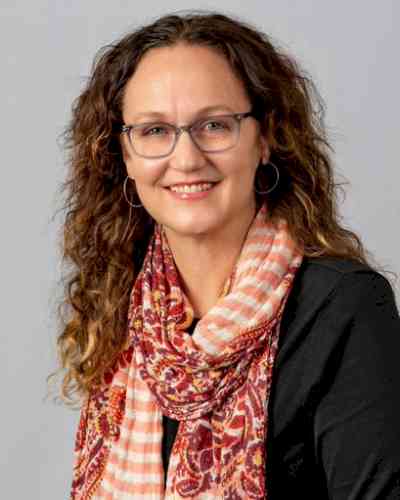
Kelley Sams, BFA, MPH, PhD, is Adjunct Faculty at the University of Florida's Center for Arts in Medicine (CAM) and Courtesy Faculty with the Center for Arts Migration and Entrepreneurship (CAME). She is a graduate of UF College of the Arts with a BFA in photography.
Kelley was previously a researcher in social anthropology and global health at the Norbert Elias Center/CNRS/EHESS in Marseille, France and a Fulbright-Hays fellow and Peace Corps volunteer in Niger, West Africa. As an applied medical anthropologist, her research takes place at the intersection of the social sciences, global health, and the arts. Kelley's recent work engages the arts and other qualitative methods to study the circulation of public health communication in the US, France, and Sub-Saharan Africa.
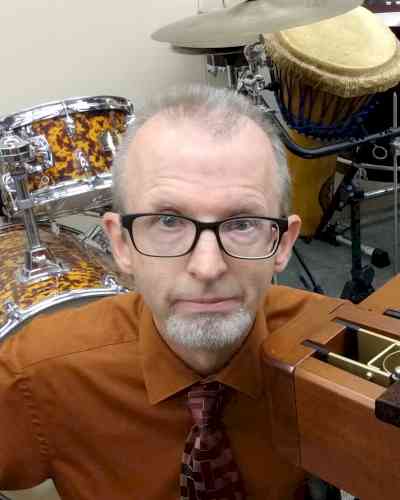
Equally at home behind timpani, steel pan, or the drumset, Dr. Kenneth Broadway has a passion for training the next generation of teachers, performers, and leaders in the field of music. He has served as Director of Percussion Studies at the University of Florida since 1997.
Dr. Broadway has appeared at various conferences throughout North America, Europe and Australia, and his compositions have been published by C. Alan Publications. His compact disc with the LYNX Duo (Music for Saxophone and Percussion) is available on the Mark Custom Recording label, and he is featured on other recordings on the Mark and Capstone labels. Dr. Broadway is active in the Percussive Arts Society, the College Music Society, and NACWPI. He is a Performing Artist for Yamaha, and educational endorser for Remo Drumheads, Sabian Cymbals and Promark Mallets. Dr. Broadway received the BM, MM, and DMA degrees from the University of Georgia.
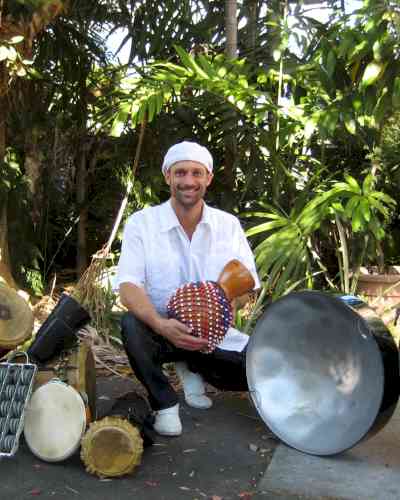
Kenneth Metzker began his musical studies in classical piano from age 4-16. He holds a Bachelors Degree in Music Performance as a Percussionist from the University of Kentucky under the direction of James B. Campbell.
He began his Afro-Cuban/Brazilian folkloric studies with Michael Spiro at age 15, which led him to study with many other notables in the Afro-Cuban genre around the United States. He traveled to Matanzas, Cuba to study Afro-Cuban folkloric music with the world renowned Los Muñequitos de Matanzas. His work has taken him to Cuba, Brazil, Europe, and the Caribbean as a performer, instructor and student.
He spent time in the northeast of Brazil collaborating and performing with various bands and dance companies, including Cia. Vata, Caravana Cultural, and Dona Zefinha, with whom he performed in Recife and Olinda, Pernambuco for Carnaval. He was a Percussionist-In-Residence at schools in Guaramiranga, Ceara, Brazil, Fortaleza and throughout state of Ceara, Brazil (2005). He has taught at the University of Whitewater summer percussion workshop, University of Tennessee, Martin as a Guest Teaching Artist (2005), at past “Rhythm Explosion” workshops in Bozeman, Montana(2004-2010), and at the University of Alaska, Anchorage, Jazz Week (2005+2013), where he collaborated and performed with Rebeca Mauleon and Jimmy Branley. He has worked as a dance accompanist in numerous settings, including the Florida Dance Festival, New World School of the Arts(2005-2018), Brazz Dance Theatre(2005-present), Young Arts regional event in Miami, and Soul to Sole Tap Festival , Austin, TX, collaborating with choreographer Katherine Kramer (2004). Kenneth was a participant in the Third World Marimba Competition in Stuttgart, Germany(2002) and had an original Afro-Cuban composition premiered with the University of Kentucky percussion ensemble at the Percussive Arts Society International Convention (2001). He has performed at the Jackie Gleason Theatre in Miami, Florida for the “Annual Brazilian Film Festival” as part of the awards ceremony, with Shakira on the Jimmy Kimmel show and the Bank Atlantic Center in Florida and as as a performer and workshop instructor at the Grassroots festivals in New York/North Carolina/Miami. He played in the official music video for the 2014 FIFA World Cup with Jennifer Lopez and Claudia Leitte. Kenneth has taught in the Miami school system with Arts for Learning, Guitars Over Guns, and many other after school programs in Miami-Dade County. Kenneth lived and worked as a free-lance musician in Miami recording, performing and teaching from 2005-2018. He currently has worked at the University of Florida since 2019 in the School of Theatre and Dance and the School of Music.
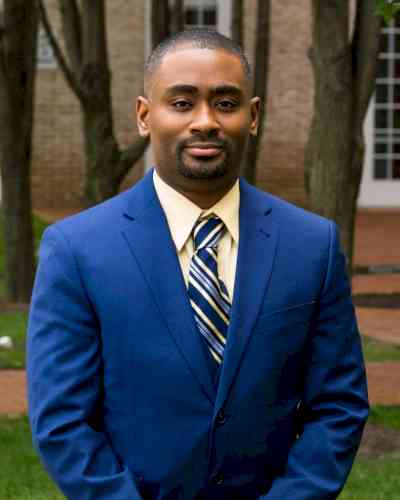
Dr. Kevin C. Winstead is an Assistant Professor of Critical Media and AI Studies within the African American Studies and Department of Sociology at the University of Florida. His research focuses on critical information studies, social movements, and digital media, specifically on transglobal disinformation. He has been part of the founding team of many of the country's earliest Black Digital Studies centers, including the African American History, Culture, and Digital Humanities (AADHum) Initiative; AADHum fostered research, education, and training at the intersections of digital humanities and African-American studies and prepared a diverse community of scholars and students whose work has broadened the reach of the digital humanities in African-American history and cultural studies, and enriched humanities research with new methods, archives, and tools.
Kevin served as the Council for Library and Information Science (CLIR) Postdoctoral Fellow of African American Data Curation with Penn State University Center for Black Digital Research. He has also served as the inaugural Project on Rhetorics of Equity, Access, Computation, and Humanities (PREACH) Research Lab Fellow within the School of Literature, Media, and Communication at Georgia Institute of Technology, which is part of the DISCO Network and funded by the Andrew W. Mellon Foundation. More recently, in his recently released book Doing Black Digital Humanities: Radical Intentionality and the Praxis of Care, Dr. Winstead, along with his co-authors, Drs. Catherine Knight Steele and Jessica Lu chronicle the work building the AADHum, the nation's first African-American Digital Humanities Initiative.
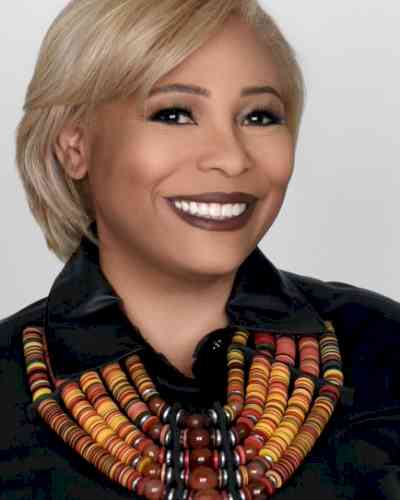
Kishau Rogers is an award-winning technology entrepreneur on a mission to amplify human capability and solve the world's increasingly complex problems with computer science, systems thinking, and creative intelligence. She is the Founder & CEO of Time Study Inc. and owner of the innovation agency bigThinking and its lab Websmith Studio.
Her work is featured in many leading publications, including Forbes, The Wall Street Journal, CNN Business, and Black Enterprise. She holds a Computer Science degree from Virginia Commonwealth University and has over 25 years of technology and entrepreneurial experience.
As the CEO of Time Study, Kishau is the first Black woman in Virginia to raise millions in venture capital to scale her tech startup. Time Study serves many of the top health organizations in the US, empowering leaders with intelligent tools to build a better future for work by optimizing how time is spent and creating more value for the enterprise's greatest resource, people.
Kishau is completing a book project which provides a transformative framework for navigating complexity and solving wicked problems through the intersection of systems thinking principles, human creativity, and artificial intelligence. Her research reveals how arts & culture must inspire and inform engineering best practices. Her latest project explores integrating tech entrepreneurship and embodiment practices to guide discovery & ideation, to scale impact, and navigate pivots. As humanity becomes increasingly more dependent on technologies that are narrowly guided by economic impact, the goal is to offer a human-centered innovation toolkit that elevates human creativity, integrates extraordinary human practices, and that (ultimately) expands the universe of people solving the world's most challenging problems.
Kishau is the recipient of numerous awards, including Virginia Commonwealth University's Distinguished Alumni in Computer Science, NAWBO Wells Fargo STEM award, Lyn McDermid Community Impact Award, and the Entrepreneur of the Year Award presented by Microsoft.
In her commitment to diversity in entrepreneurship and STEM, she advises organizations like Level Up Ventures, AI for Afrika, Embodiology, and VCU's Department of Computer Science. In addition, she served as an advisor for the first U.S. White House Hackathon for Foster Care (Think Of Us) and is a co-founder of SheHacks Africa, WAAW Foundation's software engineering program for women & girls in over three African nations.
To learn more about her work, visit kishau.com.
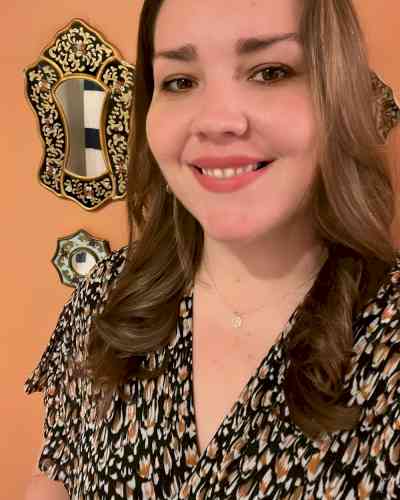
Dr. Laura Gonzales is an assistant professor of digital writing and cultural rhetorics in the English department at the University of Florida. Her work highlights the importance of language justice in community, academic, and technological contexts. She is the author of Sites of Translation: What Multilinguals Can Teach Us About Digital Writing and Rhetoric (University of Michigan Press, 2018) and Designing Multilingual Experiences in Technical Communication (Utah State University Press, 2022).
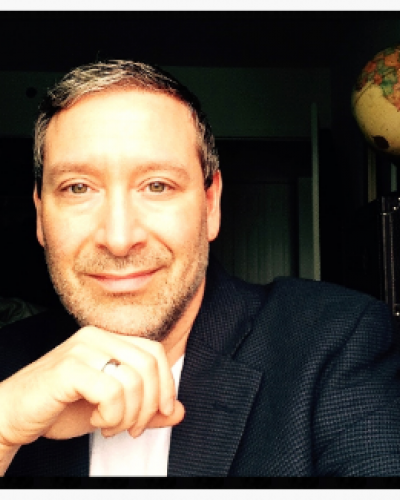
Dr. Simons is an actor, director, playwright, producer, educator, researcher, and Assistant Professor of Acting and Performance at UF’s School of Theatre and Dance. Their areas of expertise are theatre for social justice and culturally relevant theatre pedagogy. Their research examines how theatre teaching artists employ drama instruction in K-16 classrooms to respond to the lived experiences, including experiences of race and racism, cultural knowledge, and racial critical consciousness of Black and Brown students.
Their directing credits include Suzan-Lori Parks’ El Silencio Grande at The Public Theater, Toni Morrison's The Bluest Eye and Harper Lee’s To Kill a Mockingbird for The American Place Theatre, Lysistrata at Nuyorican Poets Café, Unlikely Cowboys at The Provincetown Playhouse, and Still Life for The Living Theatre. Acting credits include national tours of Driving Miss Daisy, Murder at Café Noir, their original solo play Queer in the U.S.A., and international productions of Moliere’s Don Juan and Queer in the U.S.A. Screen credits include Academy Award-winner Spike Lee’s feature film She Hate Me (opposite Academy Award-winner Chiwetel Ejiofor), Law & Order, Sex and the City, and The Sopranos. Producing credits include the Emmy-nominated PBS television series In the Life, devoted to accurate and inclusive representation of the LGBTQ+ community, and benefit performances for health and human service organizations serving the LGBTQ+ community and people living with HIV and AIDS. Dr. Simons is a member of Actors’ Equity Association and the Screen Actors Guild-American Federation of Television and Radio Artists. They completed undergraduate and graduate training at NYU and earned a Ph.D. from Fordham University.
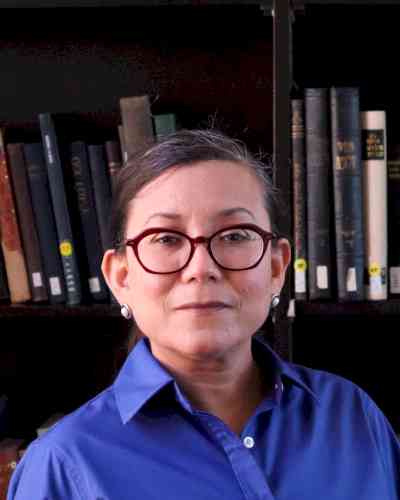
Margarita Vargas-Betancourt is the Latin American and Caribbean Special Collections Librarian at the University of Florida. She obtained a Ph.D. and an MA in Latin American Studies from Tulane University, and a B.A. in Hispanic Literature and Language from the National Autonomous University of Mexico (UNAM). Margarita uses her background on colonialism to identify and highlight the hidden voices in archives and to serve and empower Latino students at UF. She is member of the first cohort of the Mellon RBS Fellowship for Diversity, Inclusion & Cultural Heritage. Her co-authored publication “Contesting Colonial Library Practices of Accessibility and Representation” in the book Archives and Special Collections as Sites of Contestation obtained the 2022 LASA Archives Section Award for Best Article. Her latest publication is the co-edited volume Collective Creativity and Artistic Agency in Colonial Latin America.
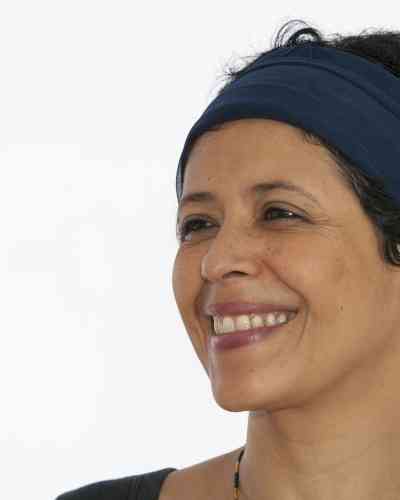
Maria Luisa Angulo is an artist-researcher of Salvadoran origin and French-Salvadorian nationality. She trained in contemporary dance in El Salvador, Senegal, and France, and she holds a master's degree in economics from the Sorbonne University and a master's degree in digital arts from the École Universitaire de Recherche (ArTec)- (Paris, France)-. Combining her artistic and academic training from a decolonial perspective, she focuses her research on the intersection between art, digital technologies, and society.
Since 2001, she has been conducting research and creative projects in various countries in Latin America and West Africa, organizing workshops, conferences, festivals, digital art exhibitions, and intercultural creative residencies between Africa and Latin America. In collaboration with artist-researcher Marlon Barrios Solano, she co-founded the Pangea.IA collective to explore hybridizations between the body as a political space, dance, and artificial intelligence from the Global South.
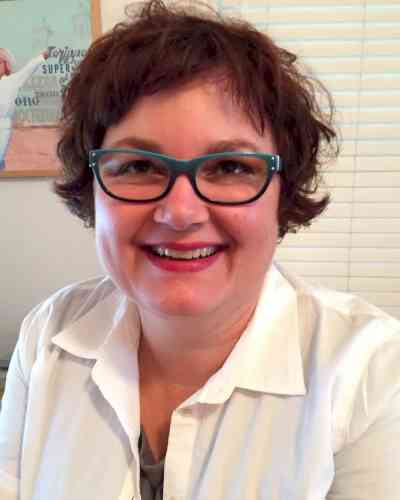
María Rogal’s trans-cultural background and perspective influence her work, in which she explores the potential of design and visual communication to positively shape the human experience.
She founded Design for Development (D4D) to co-design with indigenous entrepreneurs in rural Mexico and subject matter experts on grassroots economic development projects. By co-designing with clients as partners, she finds it is possible to develop products and strategies relevant to the context and constituents. Her intent, to this end, is to orient the design discipline toward methods and socially conscious outcomes that are sustainable and responsible. Most recently, she co-founded Codesigning Equitable Futures with Dori Griffin and Laura Gonzales.
With Raúl Sánchez, Professor Rogal co-authored the chapter “CoDesigning for Development” in The Routledge Handbook of Sustainable Design, edited by RB Egenhoffer, London: Routledge Press (2018). She is the recipient of several grants, including a Sappi “Ideas That Matter” grant (with Gaby Hernández), the inaugural American Institute of Graphic Arts Design Research Grant, and three Fulbright grants. She shares her work on design methods and pedagogy at conferences, including the AIGA H3 Biennial Conference, the AIGA New Contexts/New Practices Social Economies thread, GLIDE ‘10: Global Interaction in Design—where she was awarded best paper—and at MX Design Conference: Social Impact of Design (Universidad Iberoamericana, Mexico City). Her article “Identity and Representation: (Yucatec) Maya in the Visual Culture of Tourism” was published in the Latin American and Caribbean Ethnic Studies Journal, and she was one of 24 international educators to contribute to the Icograda Design Education Manifesto Update.
Professor Rogal’s creative design work has appeared in national and international juried exhibitions in the UK, Hungary, Cuba, Venezuela, Mexico, and the US. In the past, she has worked as a senior designer for Sapient (Atlanta) on the design of large-scale websites for international clients, including the Dutch bank ING, and worked at other design agencies as well as with the US Government. She served on design juries, including Design Incubation’s Communication Design Educators Awards program from 2016–2020, chairing the program in 2018 and 2019.
In addition to her roles with the School of Art + Art History and CAME, Professor Rogal is affiliate faculty with the Center for Latin American Studies. She received her MFA in Design/Visual Communications from Virginia Commonwealth University. Prior to that, she studied Political Science at Villanova University where she received her BA. She later studied design at the University of Maryland as a post-bac student to begin her career in design.
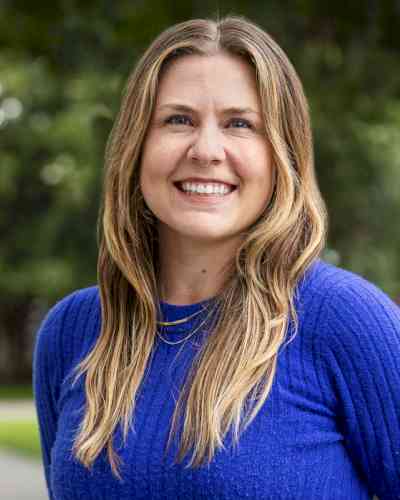
Megan M. Butala is an Assistant Professor of Materials Science and Engineering at the University of Florida (UF). The Butala Research Group focuses on materials selection and design by elucidating the relationships between composition, processing, atomic structure, and functional properties, as well as their evolution during dynamic processes. The group is particularly interested in materials for energy storage, information storage, and computing. In tandem with technical research interests, Megan is passionate about the role of mentorship and humanity in science, as well as the role of dance and choreography to advance research inquiry and public engagement with science.
Before joining the faculty at UF, Megan completed her PhD in Materials at the University of California, Santa Barbara, where she investigated the atomic structure and mesoscale origins of high-energy Li-ion battery electrodes in Ram Seshadri's group. Subsequently, she furthered her expertise in solid-state materials chemistry and atomic structure analysis as a National Research Council postdoctoral fellow at the National Institute of Standards and Technology.
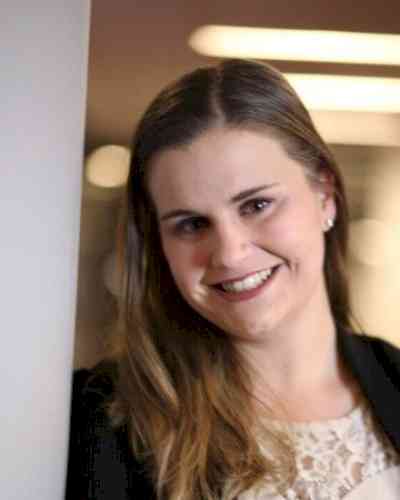
Melissa Mae White (PhD) is an Instructional Assistant Professor for Engineering Innovation Institute with the Herbert Wertheim College of Engineering at the University of Florida. Dr. White develops and instructs course curriculum in Engineering Innovation and Entrepreneurship to both undergraduate and graduate students.
She works with faculty and students to build creativity, develop an innovative mindset, promote innovation, and support entrepreneurial endeavors across campus and the local community. Dr. White has served four years on the Board of Directors for startGNV, a local 501c3 supporting the innovative ecosystem in the Greater Gainesville area. She has orchestrated several events inspiring entrepreneurship and innovation across the local higher education institutions and the community.
Dr. White received her Bachelor of Science degree in Biomedical Engineering with a minor in Anthropology from the University of Miami and her Master of Science degree in Engineering, Science, Technology, and Entrepreneurship from the University of Notre Dame. She earned her doctorate in Industrial and Systems Engineering and a Certificate Health Systems Engineering from North Carolina State University. Prior to joining UF, Dr. White helped co-found the non-profit the Medical Innovators Collaborative (MEDIC) aimed at creating an environment where students across the universities in the Research Triangle could collaborate with clinicians and industry partners to foster medical innovations.
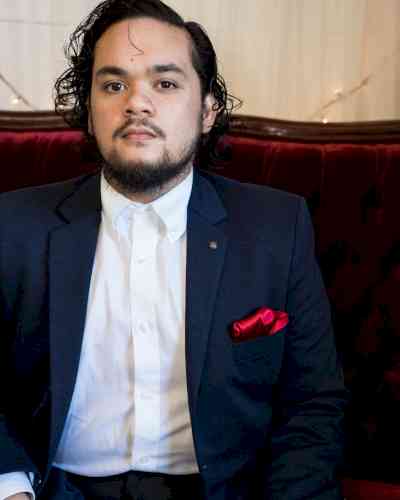
Melvin Earl Villaver, Jr., is a Hip Hop artist and scholar, honing his expertise in both Blues Epistemology and music production. His journey led him to earn a Ph.D. in American Studies from Purdue University in August 2023. Presently, he holds the esteemed position of Assistant Professor of Music and Global Black Studies at Clemson University, a role he commenced during the fall of 2023. Drawing from almost two decades of music production and songwriting acumen, Dr. Villaver intricately weaves together the practical nuances of Black Musical technical skill with the rich tapestry of theoretical and historical foundations in his research and teachings.
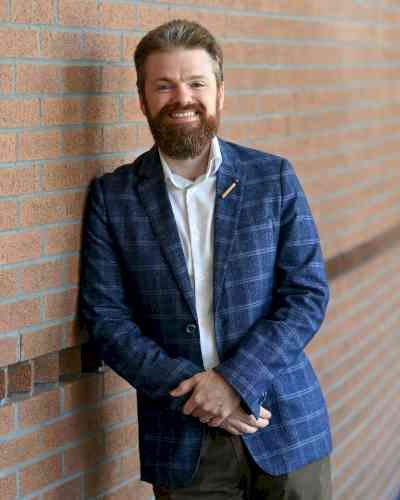
Michael Vincent is an instructor in musicology at the University of North Florida. His research on eighteenth-century music is published in Boccherini Studies, Age of Revolutions, Ad Parnassum, and Notes. His book chapter with Oxford University Press explores the historiography of eighteenth-century composer Luigi Boccherini. His research situates eighteenth-century music in diasporic communities, revealing connections between musical style and ideology in European classical music. His methodologies unite archival and historical research with interdisciplinary cultural studies. By focusing on musical culture during the Enlightenment, Dr. Vincent uses music as a compass to explore wider trends that emerged in the Age of Reason and continue to shape our world today.
Dr. Vincent has presented at national and international conferences including the American Society for Eighteenth-Century Studies, the American Musicological Society, and the First International Luigi Boccherini Conference. He is the editor for the Society for Eighteenth-Century Music Newsletter and holds a PhD in musicology from the University of Florida.
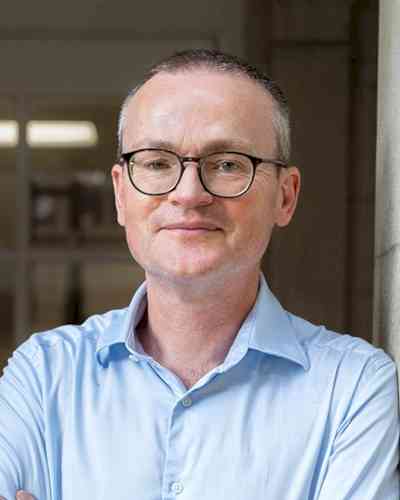
Miles Larmer is, after a decade at the University of Oxford (2013-2023), Professor of History and Director of the Center of African Studies at the University of Florida. His research focuses on southern and central Africa, specialising in the modern history of Zambia and the Democratic Republic of Congo, analysing how local historical agents have engaged and intersected with global historical dynamics, and challenging the 'methodological nationalism' of much modern African historiography. He has written on social and political change; labor and social movements; extractive communities; military conflict amid Africa's Cold War; nationalism, migration and urbanization; and, more recently, environmental history and intellectual history, particularly focusing on the relationship between social history and knowledge production.

Millicent Johnnie’s work and research center on social justice and cultural representation, driven by early experiences with opposition. As a two-time United States Artists nominee, she has made significant contributions in dance, theater, film, and music. Her choreography, featured on ESPN and other major networks, reflects her innovative approach, further showcased in her role as Associate Artistic Director of Urban Bush Women and through her A&R work with Marvelous Enterprises.
Johnnie’s stage and film work include projects like Bamboula: Musicians’ Brew, which inspired the short film Bamboula is Not Bamboozled, and La DiaBlesse Curse, developed with Trinidad and Tobago’s National Carnival Commission. Her hybrid film, Pulling Back the Curtain, explores how COVID-19 and systemic issues impact the Ballet world.
Her theatrical credits, such as Cry You One and Frozen, along with directing West Side Story in South Africa and performing at the Olympics, highlight her global influence. Johnnie’s diverse artistic portfolio demonstrates her commitment to addressing cultural and systemic issues through various creative mediums.

A Ghanaian Artificial Intelligence Researcher and graduate of Blue Crest University College who has gained global recognition for his work in agricultural innovation. Named as part of the 50 Next Class of 2022, which recognizes young people who are shaping the future of gastronomy, agriculture, and food.
A World Food Forum champion, mobilizing young influential figures to increase the visibility and reach of WFF activities and issues related to agri-food systems. A winner of numerous awards in his field including the coveted Zayed Sustainability Prize, Mustapha’s innovation has clearly distinguished him as an asset to the African continent and the world at large.
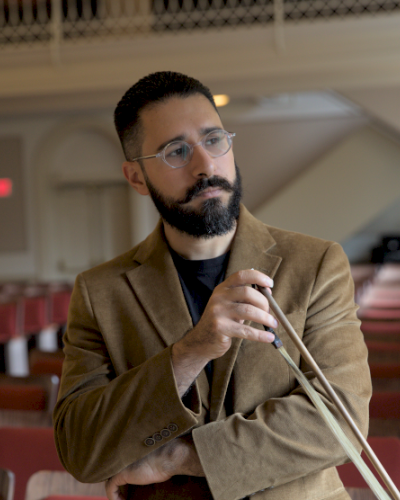
Payam Yousefi (Ph.D. Harvard University) is an ethnomusicologist and performer-composer specializing in the music of Iran, with a focus on cultural and political histories, socio-musical analysis, and critical creative practice. Dr. Yousefi's current research project Subversive Sounds: Music and Authoritarianism in Modern Iran draws on eight years of ethnographic fieldwork to explore how musician’s contemporary practices both mediate social movements and imagine new socio-political futures. Dr. Yousefi also maintains a long-term research project focused on female vocalists in Iran who have pursued their careers amid the 1979 ban on women’s public solo singing. His research on this topic was awarded the James T. Koetting Prize (2018) and the Charles Seeger Prize (2019) by the Society for Ethnomusicology. His forthcoming chapter in Music and Society in Modern Iran, ed. Nahid Siamdoust and Houchang Chehabi (2024) considers the non-coercive power of Iranian women’s vocal performances in both online and offline counter-publics. This work argues that the subversive musical performances of women within society constitute a "power of presence" which engenders contrasting notions of respectability that in effect limit the power of authorities to enforce legal restrictions.
Since 2021 he has also collaborated on a series of ongoing interdisciplinary studies at the intersection of music, psychology, and medicine that explore the efficacy of Sufi music and movement traditions in promoting health outcomes. These studies have been presented at various international conferences, including the 12th Annual European Music Therapy Conference and the International Association for the Psychology of Religion.
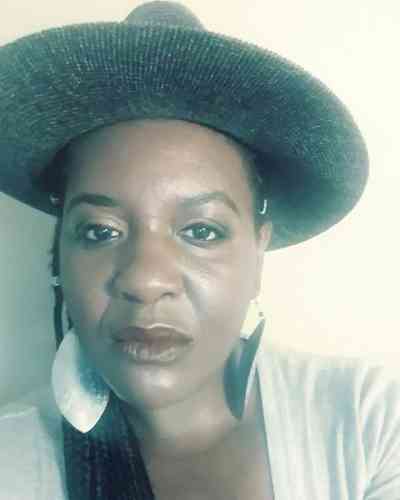
Dr. Porchia Moore is Assistant Professor (and rotating Department Head) of Museum Studies and affiliate faculty at the Center for Arts, Migration, and Entrepreneurship at the University of Florida. Formerly Curator of the "Spoken" rotating gallery of African American art and Inclusion Catalyst at the Columbia Museum of Art, Moore presents regularly at museum conferences such as AAM, MCN, Museums and the Web, AAAM, and others.
Moore coined the phrase, “The Inclusive Museum Movement” and has served as one of the original architects of Museums and Race, advisor to Museums as Site for Social Action, and is the co-creator of The Visitors of Color project. Dr. Moore holds a doctorate in Library and Information Science and a graduate certificate in Museum Management from the University of South Carolina and the McKissick Museum.
A critical race scholar examining the role and function of race in museums and cultural heritage institutions, Moore is an IMLS Laura Bush 21st Century Cultural Heritage Informatics Leadership Fellow. Her work interrogates the intersections of race, critical cultural heritage, communities, technologies, and identities in museums. Her recent book is "Transforming Inclusion in Museums: The Power of Collaborative Inquiry" published by Rowman & Littlefield.
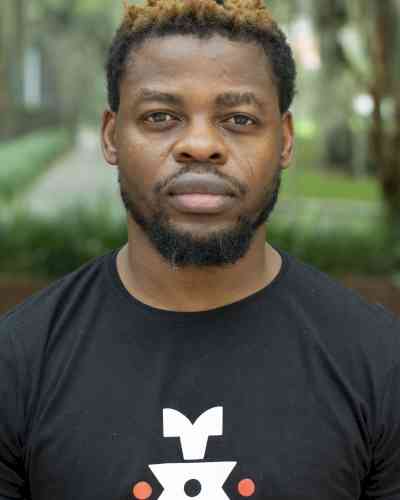
As CAME’s inaugural Maker in Residence (2020-2024), Qudus Onikeku mixed visionary creative performance with cutting edge technologies and research. Dancer, acrobat, technologist, teacher, researcher, choreographer, curator: Onikeku is a self-described multimodal artist, community organizer, and social engineer who has toured and participated in festivals and major exhibitions across more than 55 countries. His four-year tenure with UF featured performances across the US and abroad, from Paris to Lagos, as well as advanced research at the intersection of dance and artificial intelligence (AI). CAME continues to collaborate with Onikeku on Atunda: An AI Deep-Tech Solution to Economic Health and Mobility. Atunda asks the question: how can AI help protect the intellectual property (IP) of dancers and create economic health and mobility in this digital age? This project was awarded a grant from the Robert Wood Johnson Foundation.
Qudus Onikeku is Artistic Director and Co-Founder of The QDance Center in Lagos, Nigeria, which has been in operation since 2014 as a creative incubator mixing artistic competence, human resources, innovation, and creativity as capacities for human development. The QDance Center works exclusively with young artists, tech creatives, local communities, and researchers to create new interests and opportunities for culture and tech in Africa and in the diaspora. As a world-renowned choreographer and dancer, Onikeku has brought his creative vision to the international stage through live performances, collaborations with emerging technology, and through high profile media partnerships. In collaboration with Disney and Pan-African studio Kugali Media, he choreographed dance sequences for the animated miniseries Iwájú (2024) on Disney+ streaming services. Iwájú (“front-facing” or “the future” in Yoruba language) is set in a futuristic Lagos, Nigeria. In June 2023, Onikeku premiered Out of this World, a heavily audience-interactive work that mixes performance with installation, at the Centre Pompidou in Paris. The installation drew from a new software that Onikeku called “Oraqu,” and its framework and mechanics were built on the Ifá divination system of the Yorùbá people. In 2021, QDance Center premiered Re:INCARNATION (2021), a dance piece that pays homage to the complex tapestry of Nigerian Afrobeats music, dance, and urban youth cultures, Yorùbá philosophy, and African aesthetics at the Centre Pompidou in Paris before touring the performance globally.
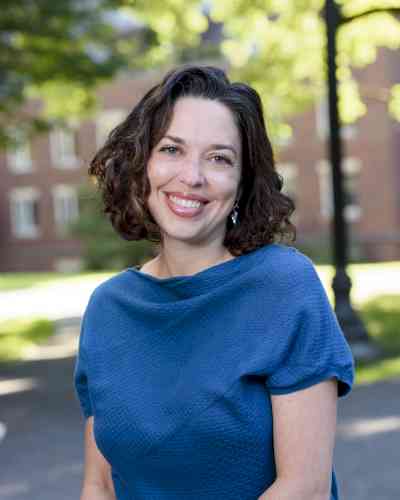
Rachel Carrico is an Assistant Professor of Dance Studies at the University of Florida’s School of Theatre + Dance. Her research explores the aesthetic, political, and social histories of second lining, an improvisational dance form rooted in New Orleans's African diaspora parading traditions.
Her scholarship has been published in several journals and edited volumes; awarded the Society of Dance History Scholars' Selma Jeanne Cohen Award for excellence in dance scholarship; and supported by the UF Scholarship Enhancement Fund, UC Center for New Racial Studies, the New Orleans Jazz & Heritage Foundation, and the Center for Gulf South Research at Tulane University. Rachel holds a Ph.D. in Critical Dance Studies from the University of California–Riverside, an M.A. in Performance Studies from NYU, and a teaching certificate from the Limón Institute. She parades in New Orleans annually with the Ice Divas Social & Pleasure Club.
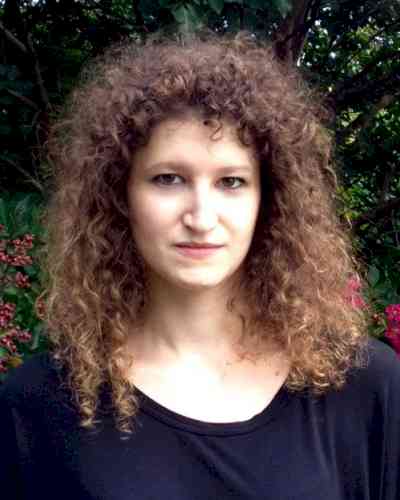
Rachel Silveri is an Assistant Professor in the School of Art + Art History at the University of Florida. She specializes in the history of early twentieth-century European art, with a particular interest in feminist thought and theories of the avant-garde.
She is currently at work on a book manuscript which reexamines the avant-garde ambition to unify art and everyday life through a set of experimental life practices established by artists across Dada, Simultanism, and Surrealism.
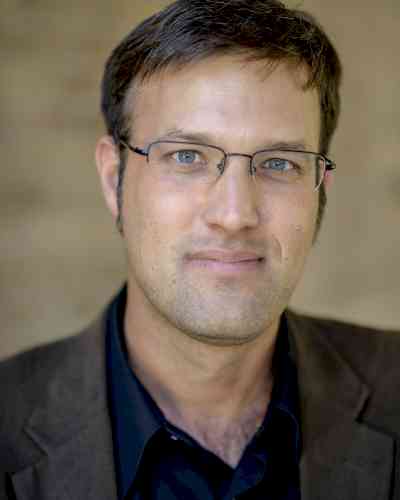
Rich Pellegrin’s research examines the significance of the Salzerian analytical tradition with respect to both the classical and jazz idioms. He has presented research at numerous regional, national, and international conferences.
His work has been published in Jazz Perspectives, Intégral (forthcoming), ZGMTH (Journal of the Society for Music Theory, Germany), Engaging Students: Essays in Music Pedagogy, the Journal of Schenkerian Studies, and The Conversation; published in volumes by the University of Florida Press (forthcoming), Vernon Press (forthcoming), Cambridge Scholars Publishing, and KFU Publishing House; and featured in the NPR segment The Academic Minute. Pellegrin recently served as Guest Editor of a special issue of Jazz Perspectives devoted to John Coltrane.
As a jazz pianist, composer, and bandleader, he has released five albums on Origin Records. His record Down was reviewed in Downbeat Magazine, which described "moments of absolute bliss" and wrote, "Pellegrin does as the great pianists do, supplying encouragement and graceful touches in the background, before diving forward to take solos that are by turns florid and cracked, balletic and modern." He is currently working on a multi-volume solo project, the second disc of which will be released in 2022.
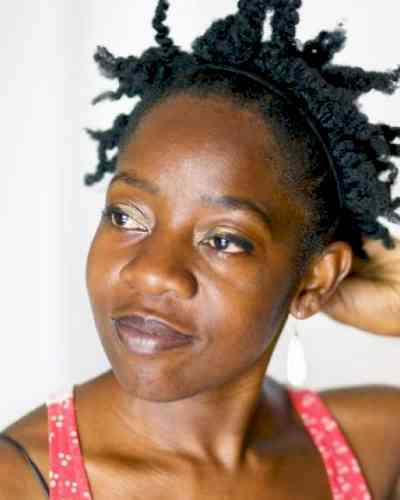
My current research explores dance as a medium that facilitates a return to indigenous knowledge systems through African centered curriculum development, sustainable community project development and by supporting cultural arts practitioners and their institutions.
As a professional dancer, I maintain an embodied Pan Africanist dance practice that helps me to remember, reclaim, and sustain my identity and vitality. My creative expression is inspired by historical and mythological narratives, and I interpret these stories by centering women and the feminine power of their ritual and performances and practices. My study focuses on, and is inspired by, the strategies and tools used by a lineage of contemporary Black African female choreographers to create their own agency.
As an independent artist and community organizer, I have created cultural exchange tours to Zimbabwe, Botswana and South Africa, and have organized and hosted African music and dance camps in New Mexico. My goal is to fold these experiences into my current practice and propel my ideas forward and expand on my impact, work, and service. As such I continue to dedicate a portion of my research to exploring innovative entrepreneurial projects that help sustain, preserve and uplift the arts and cultural economy of African people. Specifically, I have been researching responsive community-based participatory practices as a starting point for a community-based project I would like to establish in Zimbabwe, and hope to support the work of master African musicians and dancers living in the U.S with the projects they have established in their homeland. In an effort to identify the strategies and tools used to build and sustain arts-based communities at home while away from home, I intend to connect and develop relationships with artists and cultural arts institutions on the continent of Africa.
Lastly, as a 2022 Global Fellow at the University of Florida I will use the support I receive from this program to travel and conduct my research and professional development in the Gambia and Guinea West Africa in December 2022. Concurrently, I am collaborating with a professor at the University of Kisubi, Uganda on curriculum development focused on technology, dance and pedagogy. I am also looking to build a relationship with the Afrikera Dance Organization in Zimbabwe to support international dance exchanges and intend to apply to the Carnegie African Diaspora Fellowship Program and the Fulbright Specialist Program to develop partnerships with institutions like the University of Kisubi and Afrikera. This presence will simultaneously fulfil my desire to grow as an assistant professor, and allow for sustained relationships with African arts institutions in urban and rural communities in Zimbabwe, Uganda, Tanzania and other countries in West Africa.
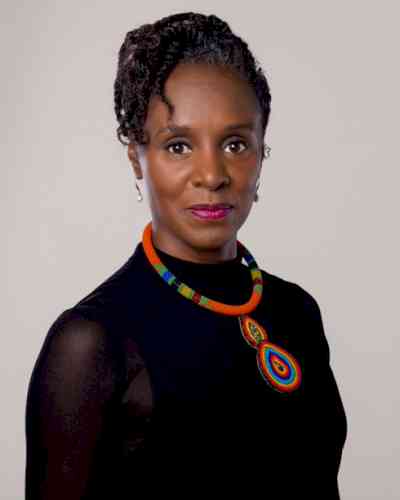
Dr S. Ama Wray is a TEDx Speaker and Professor at the University of California, Irvine, serving in both the School of the Arts and Humanities, where she is also the co-principal investigator of the Africana Institute for Creativity, Recognition and Elevation, alongside Ngũgĩ wa Thiong’o and Tiffany Willoughby-Herard.
She is also allied with the Center for Integrative Movement Science in the School of Biological Science. She received her Ph.D. in Dance Studies from the University of Surrey in the UK. As a National Endowment for Science Technology and the Arts Fellow her exploration into performance and technology led to the creation of Texterritory – an interactive cell-phone performance platform. Innovations continue through AI 4 Afrika, an initiative she co-founded with choreographers, data scientists, scholars, and entrepreneurs in 2020.
An award-winning artist, working Wray has collaborated with artists including: Wynton Marsalis, Bobby McFerrin, Mojisola Adebayo and Nicole Mitchell. A guest artist at many institutions including: United Nations, Geneva, Princeton, Harvard, Institute of Advanced Studies, University of Wisconsin-Madison, Temple, University of Ghana, Legon and UC Berkeley. Wray’s examinations of West African cultures led to the creation of Embodiology® - a transformational methodology based on West African principles of human communications. Embodiology's distinctive concepts, profiled at the Center for Neurobiology for Learning and Memory, have shown efficacy in elevating vitality, wellbeing resilience and creativity.
Stemming from this - Joy in Motion – created at the onset of the COVID-19 pandemic supports everyday people transform their indoor isolation into spaces of 'co-liberation'. As a necessary part of the development of this work Wray gives back to the Kopeyia Village community in Ghana. The Susan Samueli Integrative Health Institute also includes Wray’s Vitality in Motion program within their Wellness Services and have awarded a pilot grant to study its affects. She has given keynotes for Dance USA, World Dance Alliance and the California Black Health Network. She has written chapters entitled, Embodiology® - A Hybrid Neo-African Improvisation-as-Performance Practice distinguished by Dynamic Rhythm, in the Oxford Handbook of Dance Improvisation (2019) and Just after the Pulse, Rhythm Takes All: The Inside Habitat of Improvisation, in, Black Routes (2016). Her subject monograph is to be published by Routledge, London.
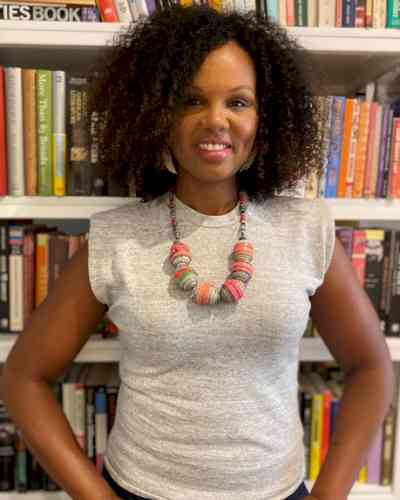
Saidah Nash Carter is a digital business native with a passion for value creation and the use of technology to create new opportunity for business and for humanity. She began her career with Reuters NewMedia during a period of profound digital transformation and went on to build and launch some of the first online news services for early internet sensations like Yahoo! and AOL.
She thrives pushing the boundaries of corporate thinking and business development through emerging technology, co-creation, and a focus on sustainability. She has an eye for identifying opportunities to stretch businesses to new frontiers while remaining connected the company’s core DNA and value proposition. This strength led her to design one of the first customer co-creation programs in Thomson Reuters resulting in a new way of approaching partnership and IP ownership and creating a pathway for richer collaboration with both customer and partner ecosystems.
As SVP- Africa Innovation, she launched Thomson Reuters data science and innovation lab in Cape Town, one of seven innovation Labs globally and the only one in an emerging market. She is particularly proud of her team’s work delivering Thomson Reuters successful Africa Startup Challenge, Africa's first Intrapreneurship Conference, and her flagship initiative to bring financial inclusion to Africa’s small scale farmers - Bankable Farmer.
Today she leads Bright Insights Global (BIG), a boutique consultancy and expert network committed to helping companies do better business in Africa. BIG’s network expertise spans financial services, media, private equity, law, talent management, digital product and business development. BIG was formed out of a desire to design and accelerate forward thinking, purpose driven, globally competitive organizations.
She is also passionate about Africa’s Intrapraneur ecosystem and works to identify, connect and empower these innovators inside large corporates. She works in partnership with the League of Intrapreneurs (https://www.leagueofintrapreneurs.com/), as a Global Fellow and Africa Catalyst.
Most Recent Awards & Recognition: 2017 Inspiring 50 Women in Tech, United Nations 2018 Voices of African Mothers Innovation Award, League of Intrapreneurs Global Fellow – 2019
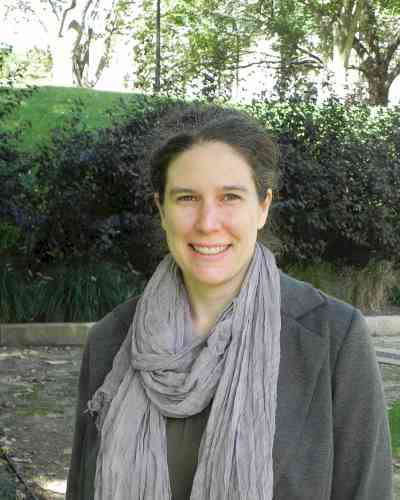
Sarah Politz's work focuses on creative practice in African and Afro-diasporic music, particularly in the context of popular music and new African diasporas in Europe and North America. She is currently working on a book project about sound, spirituality, and migration in the lives of brass band and jazz musicians from Republic of Benin, West Africa, where she has been conducting fieldwork since 2007.
Sarah completed her PhD in ethnomusicology at Harvard University in 2017, and she also holds an MA in ethnomusicology from Wesleyan University (2011), and a BM in jazz studies and a BA in English from Oberlin College and Conservatory (2007). Before coming to UF, she taught at the University of Pittsburgh and Williams College. Sarah performs actively as a jazz trombonist in several groups, including the Theodicy Jazz Collective.
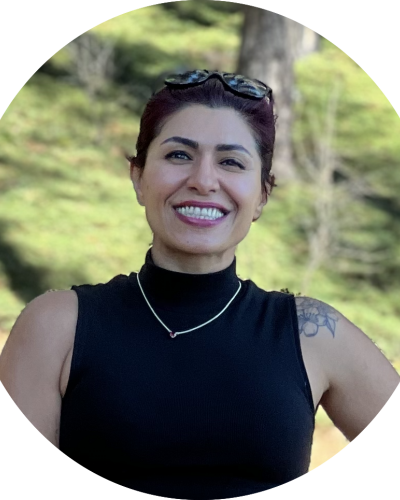
Dr. Shabnam Goli holds a PhD in Ethnomusicology and has an extensive academic background in migration and diaspora studies. Shabnam's research has delved into community dynamics among immigrant populations, particularly focusing on Iranian immigrants in California. As an instructional designer, she has contributed to the development of inclusive educational content, emphasizing Open Educational Resources.
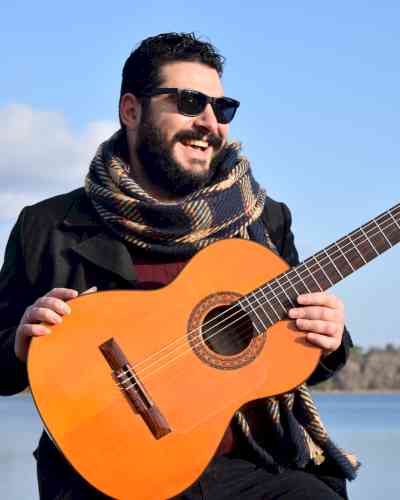
Classical and flamenco guitarist Silviu Ciulei was born in Constanta, Romania. He began his musical studies at the National Conservatory at age six. In 2004, Silviu came to the US and was awarded a Full International Scholarship in Guitar Performance at Middle Tennessee State University where he studied with Dr. William Yelverton and received his Bachelor of Music degree.
Silviu has been a top prizewinner in some of the world’s most prestigious competitions including Guitar Foundation of America’s International Concert Artist Competition, Schadt String Competition, and Parkening International Guitar Competition in Malibu, CA.
Acoustic Guitar Magazine hails “...guitarist Silviu Ciulei brings extraordinary touch to both classical and flamenco repertoire." Silviu is also an acclaimed flamenco guitarist. He has traveled to study flamenco in Andalucia, Spain. He holds a Master and Doctorate in Music Performance from Florida State University where he studied with renowned professor Bruce Holzman. Silviu speaks five languages fluently and is also a fine flamenco singer with his touring group, the Maharajah Flamenco Trio. Dr. Ciulei is currently Director of Guitar Studies at the University of Florida.
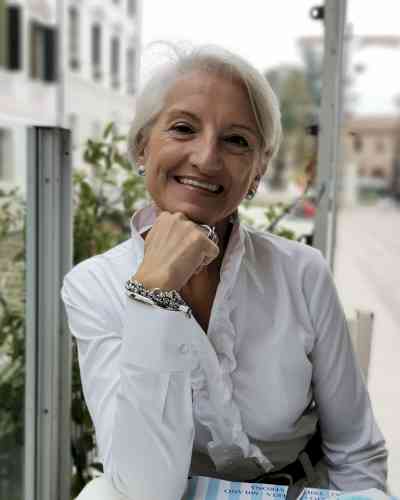
Simona Wright is professor of Italian and Director of the Italian program at The College of New Jersey. Her areas of research are Twentieth Century Italian literature, Italian Poetry, Postcolonial and Space Studies, and Italian Cinema. Her publications include a monograph on Italo Calvino, and several articles on Italian Women Writers, Contemporary Italian Poetry, Postcolonial literature and cinema, and Space Studies. She is the co-editor of Contaminazioni culturali (Vecchiarelli 2014), Attraversamenti culturali (Cesati 2016), Mapping Leopardi. Poetic and Philosophical Investigations (Cambridge Scholars 2019), Transnational Spaces: Celebrating Fifty Years of Literary and Cultural Intersections at NeMLA (Vernon Press 2023), and Women Representing Women: A Transnational Perspective (Vernon Press 2025). Since 2006 she has served as the chief editor of NeMLA Italian Studies. She served as president of NeMLA and is presently its Vice-President (third term). From 2013 to 2019 she has organized the Intersections/Intersezioni conference in Turin (2013-2014), and in Florence, (2015-2019).
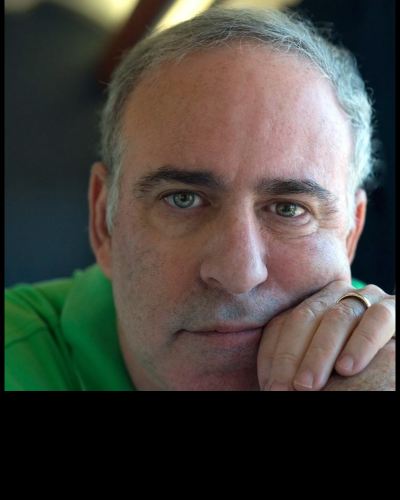
Stan Kaye heads the graduate Lighting Design program at the University of Florida in Gainesville. Professor Kaye’s background stretches over forty years of experience in both academia and the lighting industry.
The relationship between a strong commitment to teaching and ongoing activity in the profession is a cornerstone of his teaching style. Born in Brooklyn, his informal training in lighting design was the result of years of professional free-lance exposure to the finest practitioners of stage lighting in New York City. He has held positions and worked on projects at Production Arts Lighting (now PRG), The Joyce Theatre, The Brooklyn Academy of Music, Lincoln Center, The Acting Company, Alvin Ailey Dance Theatre, and Brooklyn Center for the Performing Arts, the Freed Center for the Performing Arts, the Smithsonian American Art Museum and the Renwick Gallery where he was a research fellow for 2015-16. In Fall 2022 Kaye will be on sabbatical working at the Smithsonian again and learning from LD Jeff Razitz in California who is a renowned expert on lighting live events for TV broadcast.
He holds the following degrees: The AA from Kingsborough Community College (City University of New York), the BFA from Brooklyn College, (CUNY) and the MFA from the University of Hawaii, Manoa. Since 1989 he has taught at Bucknell University, Northeastern University, and The University of Nebraska. In the Fall of 1999 he joined the faculty of the University of Florida. Professor Kaye is a member of United Scenic Artists-829, the International Association of Lighting Designers (IALD) and the Illuminating Engineers Society of North America (IESNA) and the Professional Lighting Designers Association (PLD) based in Europe.
His design credits include over 150 productions including dramas, musicals, industrials, architecture, and special events in both professional and academic domains. He has won numerous awards for his design work over the last 39 years, including a Po’o-kela award (the Hawaiian Tony) and several KC-ACTF awards. In Fall of 2015 while on research sabbatical he worked with the Smithsonian’s lighting design department to relight David Hockney's groundbreaking piece Snails Space: Painting as Performance with Vari-lites the first work of art illuminated with automated color changing lighting. Kaye and Scott Rosenfeld engaged in a yearlong study of the art and designed a LED based system that replaced the 20 year old Varilite system. The Smithsonian choose to fund the redesign and is now in operation at American Art in Washington DC. See link: http://americanart.si.edu/collections/search/artwork/?id=71863. Kaye also assisted Rosenfeld on the lighting of the opening show at the Renwick Gallery titled Wonder in Fall 2015. See Link: https://americanart.si.edu/exhibitions/online/wonder/
Many of Kaye's students have a strong history at the Williamstown Theatre Festival, on and off Broadway, recent students have worked as Assistant LD's and as LD's on Broadway shows. Kaye set up and secured a formal apprenticeship program at the Asolo (LORT) regional theatre in Sarasota. At the Asolo students work side by side with professional freelance designers and build relationships that bridge them into the professional theatre in NYC and other major markets around the nation. Florida students dominate at the Lighting Dimensions International conference and trade show each year, in fact our alumni have run the internship program there making direct connections to the industry along with the most active design and technology professionals in the entertainment industry. Recently Kay organized a internship with the Lighting Design Group.
Back in 2002 Professor Kaye, in partnership with Professor Martin Gold (School of Architecture), received a grant from the Nuckolls Fund for Lighting Education to create a curriculum that synthesizes theatrical and architectural lighting design. Recent guests in this special program have included James Turrell, Anne Militello, Paul Gallo and Heather Carson among others. This Bi-annual team-taught class is offered to graduate theatrical lighting designers and graduate architecture students in alternating years.
He writes for industry trade publications and is often quoted in articles related to lighting design education. Including Live Design, LD & A. He works as a guest artist nationally and consults.
Professor Kaye is President and founder of SKDesign and Consulting LLC, a theatre design consultancy working in the Southeast United States.
Professor Kaye founded the international podcast known as LIGHT TALK with the Lumen Brothers with his colleagues David Jacques (UC Long Beach) and Steve Woods (Southern Methodist University) Light Talk began in 2017 and has been downloaded over 150,000 times across 120 foreign nations. The podcast has be called the "new voice of the industry" Light Talk is published weekly and is self produced. LIGHT TALK is non-profit endeavor and currently does not take any commercial sponsors. Currently there are over 150 episodes and may be found on iTunes, Google play and Stitcher and IHeart radio. LIGHT TALK also interviews leaders in the profession in a informal and engaging way. The podcast maintains a website lighttalk.org
In Summer 2018 Kaye was a Keynote speaker at Electronic Theatre Controls International Workshop in Madison Wisconsin where he and the Lumen Brothers interviewed CEO and founder of ETC Fred Foster. Kaye and the Lumen Brothers gave a master class in lighting design to participants from over 40 countries. LIGHT TALK continues to attract listeners, with a Facebook group with over 1,200 members worldwide who pose questions and topics for upcoming shows. Some lighting educators around the world include the Light Talk podcast as required listening for their students. The show is entertaining and educational.
His consultancy SKDesign and Consulting LLC recently completed the new Furman Center for the Arts at the University of Tampa, including the new recital hall, small black box, and reception stage in the new gallery space. For the the Sarasota Jewish Federation with https://www.fleischmangarcia.com/SKD is designing facade lighting, custom remote controlled track lighting for the new ballroom. Three large projects are currently underway in the early phases: and renovation of the Martin Theatre in Panama City Florida, Howard Middle School for the performing arts in Orlando Florida and Winter Park High School theatre in Winter Park Florida. Process work can be seen here:
In 2020 Professor Kaye was awarded the undergraduate mentor of the year award from the University Regional Theatre Association (URTA) in Chicago. In that same year, Kaye was presented with the distinguished alumni award from Brooklyn College of the city university of New York.
In Fall 2022 Kaye is on a research sabbatical. Once again at the Smithsonian where he is researching and learning about the worlds largest wirelessly controlled museum lighting system. He will also travel to California to learn from several of the nations top designers for lighting live performance in the broadcast environment.
In November he will host and participate in a 90-minute webinar hosted by the Illuminating Engineers Society of North America on how to reform lighting education at the University level to give students more dynamic and sustainable careers. The webinar can be found here.
Professor Kaye and two MFA graduate students, and two BFA students on a 3D digital reconstruction project for legendary lighting designer Beverly Emmons of her 1996 Broadway production of The Heiress for the performing arts legacy project.
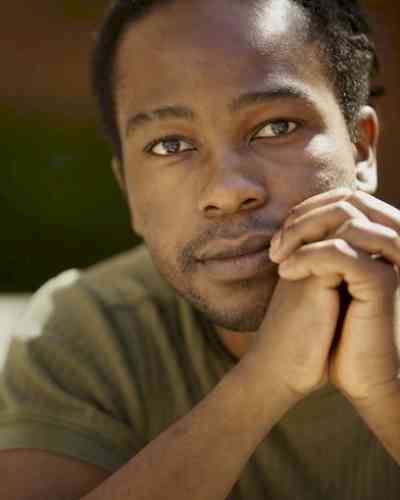
Tawanda Chabikwa is an interdisciplinary artist-scholar whose work revolves around Black and Africana dance practices, practice-based research, and creative collaboration. Current research and creative practice investigates choreographic practices of transnational African artists, contemporary African theatrical dance, Africana religions/spiritualities and philosophy, decolonial pedagogies, embodied research methodologies.
He holds a B.A. in Human Ecology from the College of the Atlantic, an M.F.A. in Dance from Southern Methodist University, and works with storytelling, performance art, and visual art (most recent exhibition was at the William H. Thomas Gallery in Columbus, Ohio 2017), and creative writing (first novel Baobabs in Heaven published in 2010). Tawanda holds a doctorate in Africana Studies from the Department of African American and African Studies at The Ohio State University and is an Assistant Professor of Dance and Africana Studies at the University of Texas at El Paso. Tawanda’s interdisciplinary scholarly and creative endeavors have led to collaborative encounters, including think-tank initiatives, educational practice, performances exhibitions, and presentations in Zimbabwe, France, Mozambique, many parts of the United States and more.
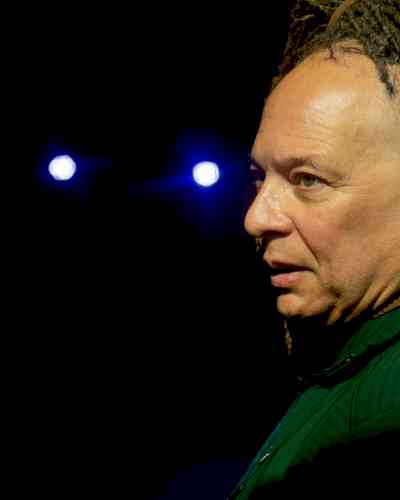
Thomas F. DeFrantz directs SLIPPAGE: Performance|Culture|Technology, a research lab that explores emerging technology in live performance applications. Believes in our shared capacity to do better and engage creative spirit for a collective good that is anti-racist, proto-feminist, and queer affirming. Member AI4Africa. Convenes the Black Performance Theory working group as well as the Collegium for African Diaspora Dance, a growing consortium of 350 researchers committed to exploring Black dance practices in embodied writing.
Creative Projects include Queer Theory! An Academic Travesty commissioned by the Theater Offensive of Boston and the Flynn Center for the Arts; fastDANCEpast, created for the Detroit Institute for the Arts; reVERSE-gesture-reVIEW commissioned by the Nasher Museum in response to the work of Kara Walker, January, 2017. Books: Routledge Companion to African American Theater and Performance (with Kathy Perkins, Sandra Richards, and Renee Alexander Craft, 2018), Choreography and Corporeality: Relay in Motion (with Philipa Rothfield, 2016), Black Performance Theory: An Anthology of Critical Readings (with Anita Gonzalez, 2014), Dancing Many Drums: Excavations in African American Dance (2002), and Dancing Revelations: Alvin Ailey's Embodiment of African American Culture (2004). DeFrantz acted as a consultant for the Smithsonian Museum of African American Life and Culture, contributing concept and a voice-over for a permanent installation on Black Social Dance that opened with the museum in 2016. slippage.org
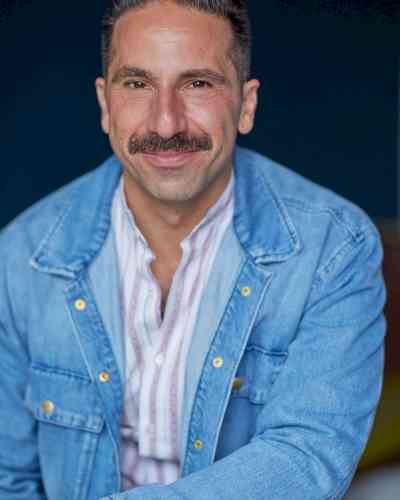
Thomas Simsarian Dolan is an ACLS Emerging Voices Fellow in Middle Eastern and South Asian Studies at Emory University. He recently completed a year as a Fulbright U.S. Teaching Scholar in History at American University in Cairo, after receiving degrees from George Washington University, Yale and NYU. His research has been supported by the National Association for Armenian Studies and Research. American Geographical Society, Calouste Gulbenkian Foundation, Institute for Middle East Studies, Dr. Philip M. Kayal Fund for Arab American Research, Bentley Historical Library, among others. Thomas has published extensively in academic and popular arenas, served as a visiting researcher at the Doha Institute for Graduate Studies, and is a Board Member on SAG-AFTRA’s National MENA Committee, Co-Coordinator of the “Critical SWANA Studies” section of the Association for Asian American Studies, and Founding Member of the Armenian American Action Network.
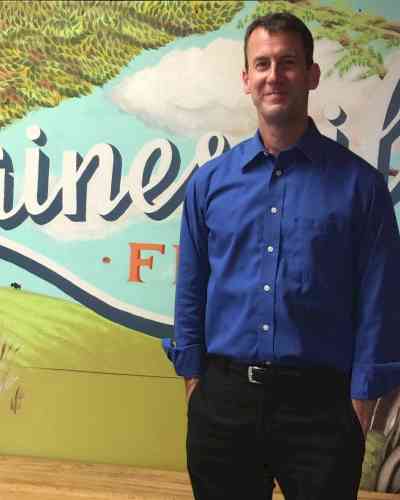
Tim Murray holds a PhD and an MA in ethnomusicology from the University of Florida and a BA in English Literature from the University of North Texas. He currently teaches African American Musical Heritage and Introduction to World Musics at UNF. As an ethnomusicologist, his research crosscuts the fields of Arctic ethnomusicology and anthropology with a theoretical emphasis on musical scapes, phenomenology, and the semiotics of music and emotion.
His publications have investigated the communal soundscapes of Connecticut’s Ancient fife and drum community (Routledge 2021) and the impacts of Inuit drum dancing on the psychosocial well-being of Inuit living in Ulukhaktok, an Inuit community in the Canadian Arctic (Lexington, in press). Tim is an active jazz drummer in the North Central Florida region.
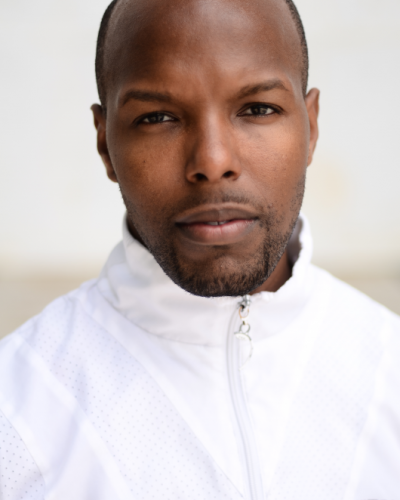
Trent D. Williams, Jr. is an Associate Professor of Modern Dance + Choreography in the School of Theatre and Dance. He is an affiliate faculty member of the Centers for Arts in Medicine, Arts, Migration and Entrepreneurship at the University of Florida where he has taught since 2014.
Mr. Williams has also served as a faculty member at the University of Maryland Baltimore County (UMBC), University of Trinidad & Tobago, Howard Community College, Howard University Division of Fine Arts and Johns Hopkins Estellle Dennis/ Peabody Dance Training Program for Boys. Additionally, he is a consultant for the Florida Department of State, Division of Cultural Affairs, National Endowment for the Arts, and MAP Fund. Recently awarded the UF 2020 Superior Accomplishment, 2019-2022 UF Provost’s Term Professorship, 2018 UF Excellence Award for Assistant Professors, and 2018 International Educator. In addition, Williams was selected as one of “40 under 40” by The Gainesville Sun.
Mr. Williams was a founding member of Urban Souls Dance Company in Houston, Texas and he has been a guest artist with Tallahassee Ballet in Tallahassee, FL, EDGEWORKS Dance Theatre in Washington, DC. Additionally, Mr. Williams has performed alongside Destiny’s Child, 112, and Janelle Monae among others. In 2007, Mr. Williams was invited to dance with Dayton Contemporary Dance Company (DCDC) in world-renowned works by Talley Beatty, The Stack Up (1992) and Eleo Pomare, Las Desenamoradas (1987), Donald Byrd, Rodney A. Brown, William B. McClellan, Jr., Debbie Blunden-Diggs, Shonna Hickman-Matlock and Bill T. Jones.
His creative research focused on the African diaspora, inclusive of Latinx traditions, Caribbean traditions and African-American traditions. Inspired by literature, history, cinema, and current events, he seek material that reveals the universality of the human condition, including social inequalities and how they impact our changing world. His current dance film, Black Stains, in collaboration with filmmaker, Tiffany Rhynard, will help people to better understand the complex issues that intersect in the lives of black men in America. This dance film has been recognized nationally at the Sans Souci Festival of Dance Cinema in Boulder, Colorado and internationally at the London International Screendance Festival, just to name a few. His choreography has been performed by The Tallahassee Ballet, Dayton Contemporary Second Company, Texas Tech University, Towson University, University of Trinidad & Tobago, Coker College Dance Company, Urban Souls Dance Company, and has been showcased at The American Dance Festival, The American College Dance Festival, The Modern Atlanta Dance Festival, The Dance Gallery in Huntsville, Texas, and Kennedy Center: Millennium Stage.
Williams a native Houstonian recieved his MFA in Dance Peformance & Choreography from Florida State University and BA in Psychology from Morehouse College.
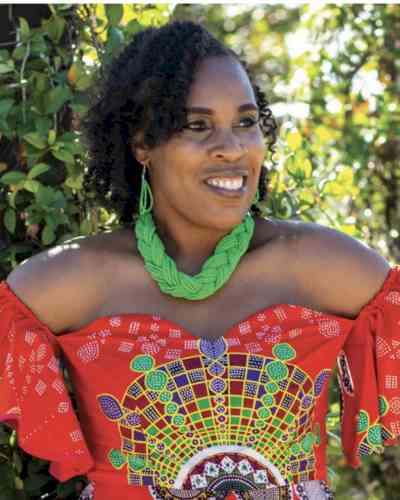
Wanda Lloyd has been teaching for 26 years and is currently a 5th grade teacher in Gainesville, FL. In 2014, she started taking dance classes as a hobby and a form of exercise. After a few years it became her passion. Out of that passion, she launched her own adult dance group, Smooth Flava Dance Gainesville, in 2016.
In that same year, Lloyd was teaching at an I AM STEM summer camp. While there, she encountered several students who wanted to complete the summer program but whose parents couldn’t afford the payments for the final weeks. Inspired by the kids who wanted to continue learning, Lloyd decided to donate the proceeds from her dance program. From there she created an annual three-day dance event that now attracts attendees from all corners of the country. All of the money raised supports I AM STEM summer camp scholarships.
Lloyd loves leading her dance program and the positive impact it has had in her community. She believes that she has been blessed and has achieved her accomplishments to-date because Smooth Flava Dance is focused towards dancing for a purpose that is positive and impactful.
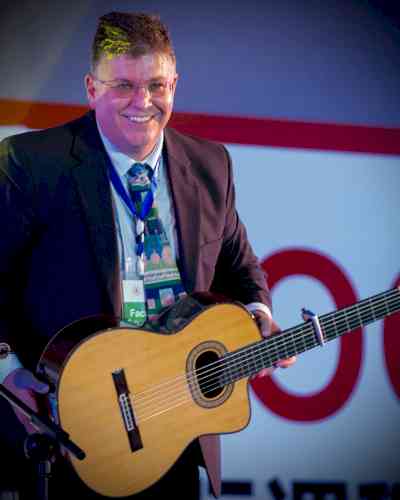
Welson Tremura (musicologist – guitarist – singer) is a Ph.D. in musicology-ethnomusicology from Florida State University and currently serves as a Professor in the School of Music and the Center for Latin American Studies at the University of Florida.
Dr. Tremura is also the Associate Director for the Center for Arts, Migration, and Entrepreneurship, and the Director for the Florida-Brazil International Linkage Institute. Dr. Tremura’s main research focuses on music and religion as expressed in folk Catholicism traditions of folia de reis or the Three Kings celebration in Brazil. Additional research areas include the usage of digital technology in performance and global technology and the inclusion of world music as a core discipline and collaborative method for teaching and collaboration. His new book Chapter: "Folia de Reis: an Afro-Brazilian Experience in Rural Brazil with "Understanding America: the Essential Contribution of Afro-American Music to the Sociocultural Meaning of the Continent" a book publication to be released in the Spring of 2022.
Dr. Tremura’s academic assignments include a series of projects to expand music and performance scholarship to create opportunities for students, faculty, and artists to collaborate nationally and internationally. His academic career has been building collaborative relationships between various units at the University of Florida to create new and unique programs to facilitate interdisciplinary projects, such as composing music to foster creativity and innovation Dr. Tremura’s Brazilian Music Institute (BMI) is the result of a grant from the John S. and James L. Knight Foundation and supported by the UF School of Music, Broward College, UF Center for Latin American Studies, UF Center for World Arts, Art Serve, U.S. Department of Education Title VI Program and Visit Gainesville, are Dr. Tremura’s artistic excellence and most acclaimed annual event. Since 2001 the Institute in the month of May features daily rehearsals and group lessons in Brazilian instrumental and vocal music, as well as, two concluding concerts with international outstanding Brazilian artists. Dr. Tremura maintains an updated video channel available on Youtube (https://www.youtube.com/user/wtremura) and Vimeo (https://vimeo.com/tremura)

Dr. Ying Xiao is an associate professor of global Chinese studies and film and media studies at the University of Florida. She received her Ph.D. from Cinema Studies at New York University.
Her teaching and research interests primarily concentrate on Chinese-language films (mainland, Taiwan and Hong Kong), Chinese and Asians in the global context, Classical Hollywood cinema in the sound era, popular music, youth culture, sound studies, theories of globalization and transnationalism, Buddhism and film, and the discourse of gender and sexuality. She is the book author of China in the Mix: Cinema, Sound, and Popular Culture in the Age of Globalization (University Press of Mississippi, 2017) and has published many articles on neoliberalism and Chinese film industry, hip hop culture, Chinese rock ‘n’ roll film, documentary and transcultural media production. Before joining the University of Florida, she was involved in a series of TV and documentary productions.
She has participated in the curatorship of Reel China Documentary Film Festival since 2004 and co/organized “DV China and Social Change” film series and workshop in 2011, “Sound of China: Folklore, Rock ‘n’ Roll, and Chinese Hip Hop” symposium in 2013, “Shanghai in a Global Context: Cinema, Media, and the Crossing of Imaginations” workshop in 2017, and “Gender, Disability, and the Chinese Muslim’s Encounters with Cultural Traditions and a Modernized World” colloquium and film series in 2019, and “Labor, Love, and Homecoming: Towards a Trans-Asian and Global-Cultural Sisterhood” symposium and screening in 2022. Dr. Xiao holds various visiting professorships and fellowships in Fudan University, Yangzhou University, Xiamen University, Zhejiang University, and so on. She sits on a variety of editorial boards and serves as a reviewer for important academic journals, presses, grants, and awards. She has actively partaken in and facilitated a number of international film festivals and also been extensively interviewed and featured at many national and international news and media outlets.
Connect with the Center for Arts, Migration, and Entrepreneurship
Keep up with the latest news about faculty, alumni, friends and current students.
Social Media
Admissions Questions?
Request Information
